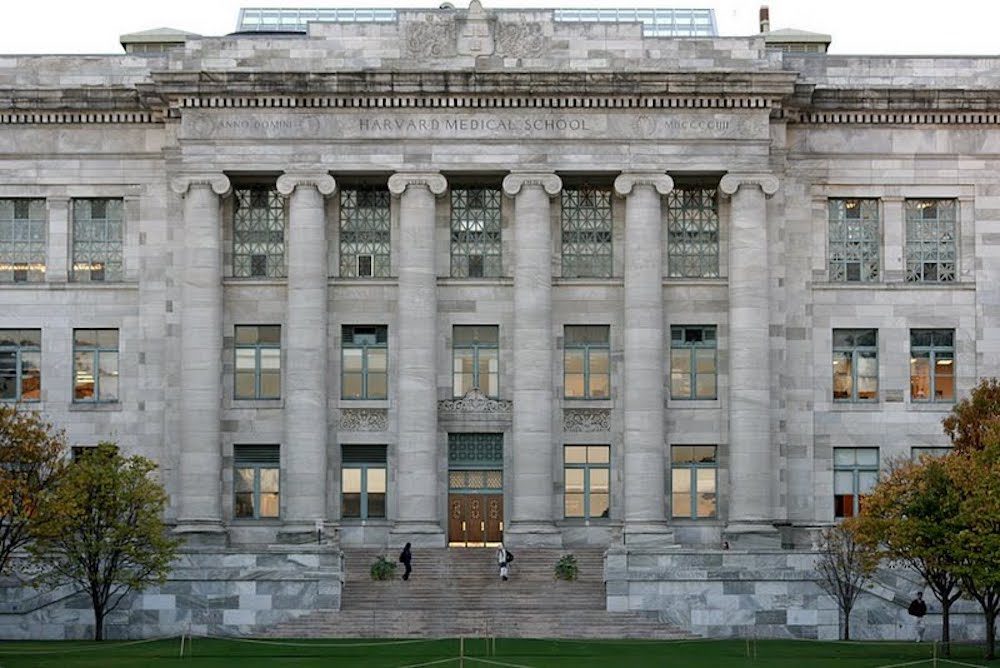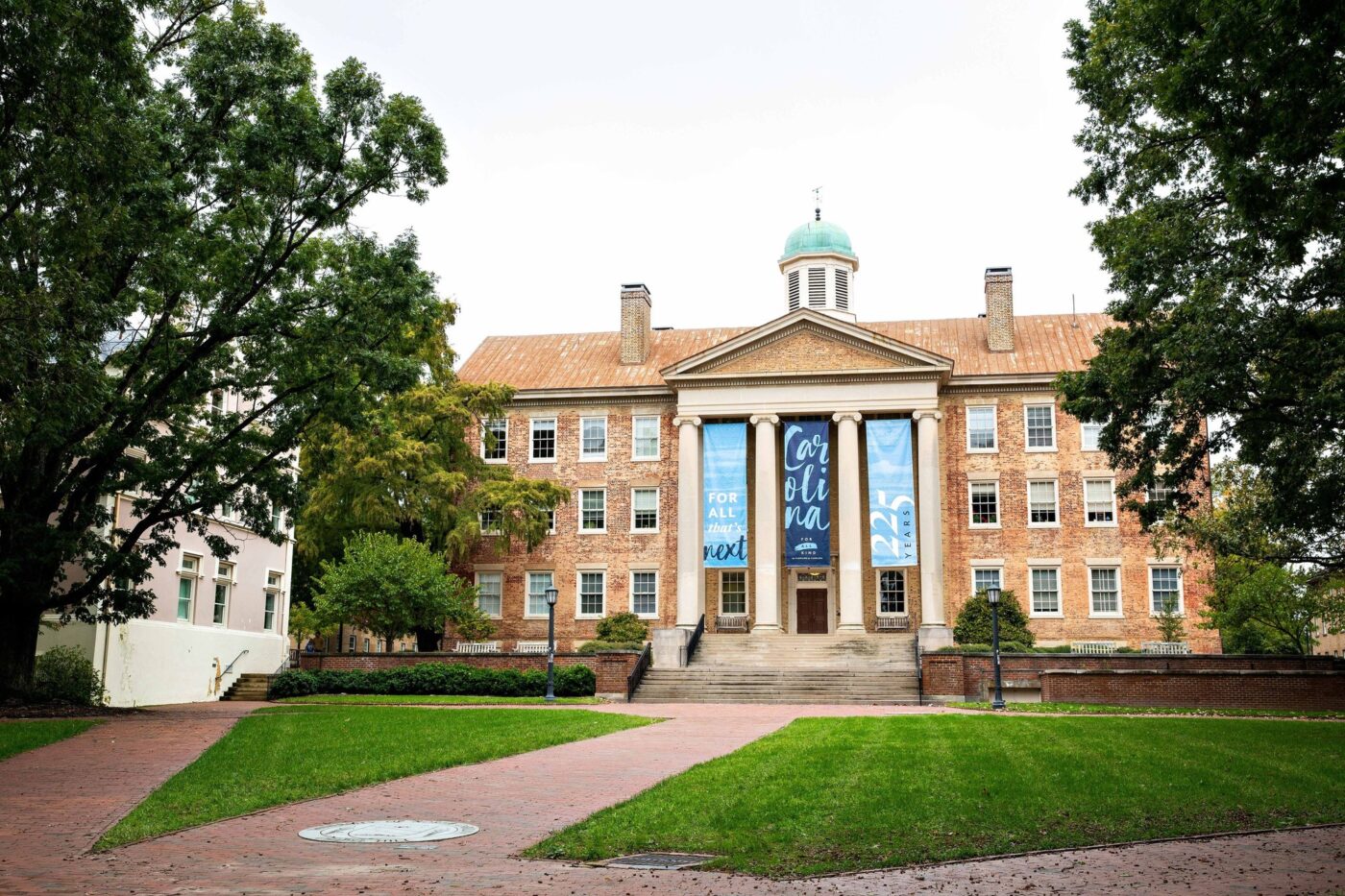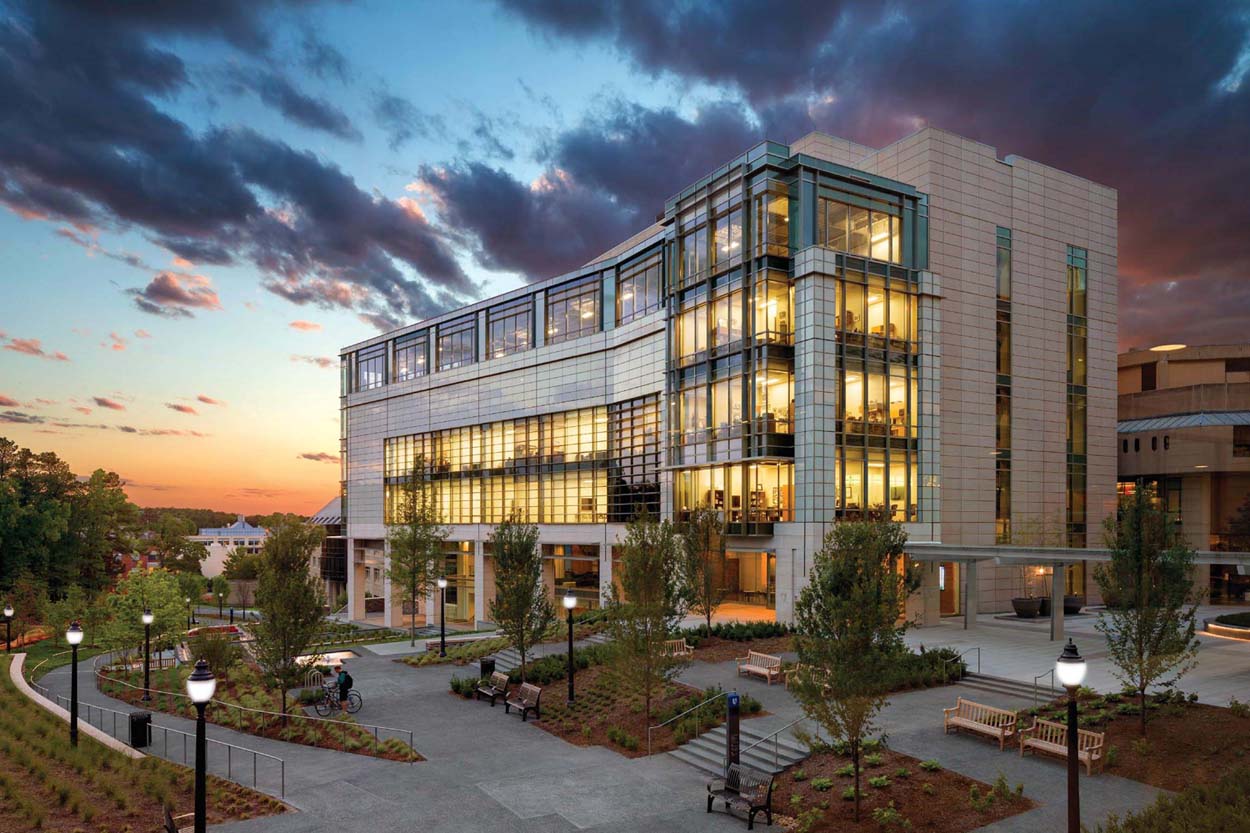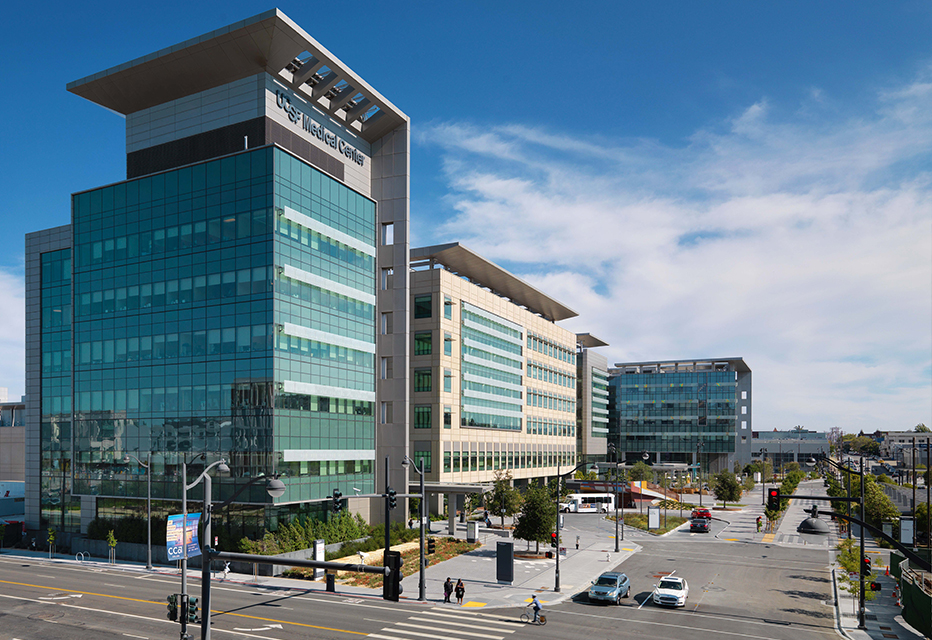Selecting the right pre-med program is pivotal to laying a strong foundation for your medical career. This guide focuses on what is a pre med program, key attributes that make a pre-med school stand out, including medical school admission rates, research and clinical opportunities, advising services, the overall academic environment, and the top institutions and what they offer in terms of pre-med programs.
What is a Pre-Med Program?
A pre-med program is designed to prepare students for medical school by providing them with the necessary background in sciences and other relevant fields. These programs are not specific majors but rather a curriculum pathway that ensures students fulfill the medical school prerequisites. Choosing the right pre-med program is crucial for aspiring medical professionals to ensure they receive the best education that aligns with their career goals.
Overview of the Best Pre-Med Programs
When it comes to identifying which schools have the best pre-med programs, it’s important to consider a variety of factors including faculty qualifications, resources, access to medical facilities, and success rates of graduates entering medical schools. The best pre-med programs offer comprehensive coursework, extensive advising, and ample opportunities for clinical experience and research, setting students up for success in their medical school applications.
Exploring Pre-Med and Pre-Med Post-Bacc Programs
Pre-med programs are available at the undergraduate level, providing foundational education in fields such as biology, chemistry, and physics. For those who decide to pursue medicine later or who wish to strengthen their academic record, pre-med post-bacc programs are an excellent option. These programs are tailored for individuals who already hold a bachelor’s degree but need to complete or enhance their science coursework to qualify for medical school admission.
Distinctions Between Post-Bac and Post-Bacc Pre-Med Programs
While often used interchangeably, “post-bac pre-med programs” and “post-bacc pre-med programs” refer to structured educational plans designed for post-baccalaureate students aiming to enter medical fields. These programs typically offer intensive science education and preparation for the Medical College Admission Test (MCAT), along with advising and application support.
A pre-med track is not a major but a series of required courses that prepare students for medical school. These courses are crucial regardless of your major and are designed to build the necessary skills for medical school success. The best pre med programs offer a comprehensive educational experience that aligns with your medical aspirations, rather than just focusing on delivering pre-determined coursework.
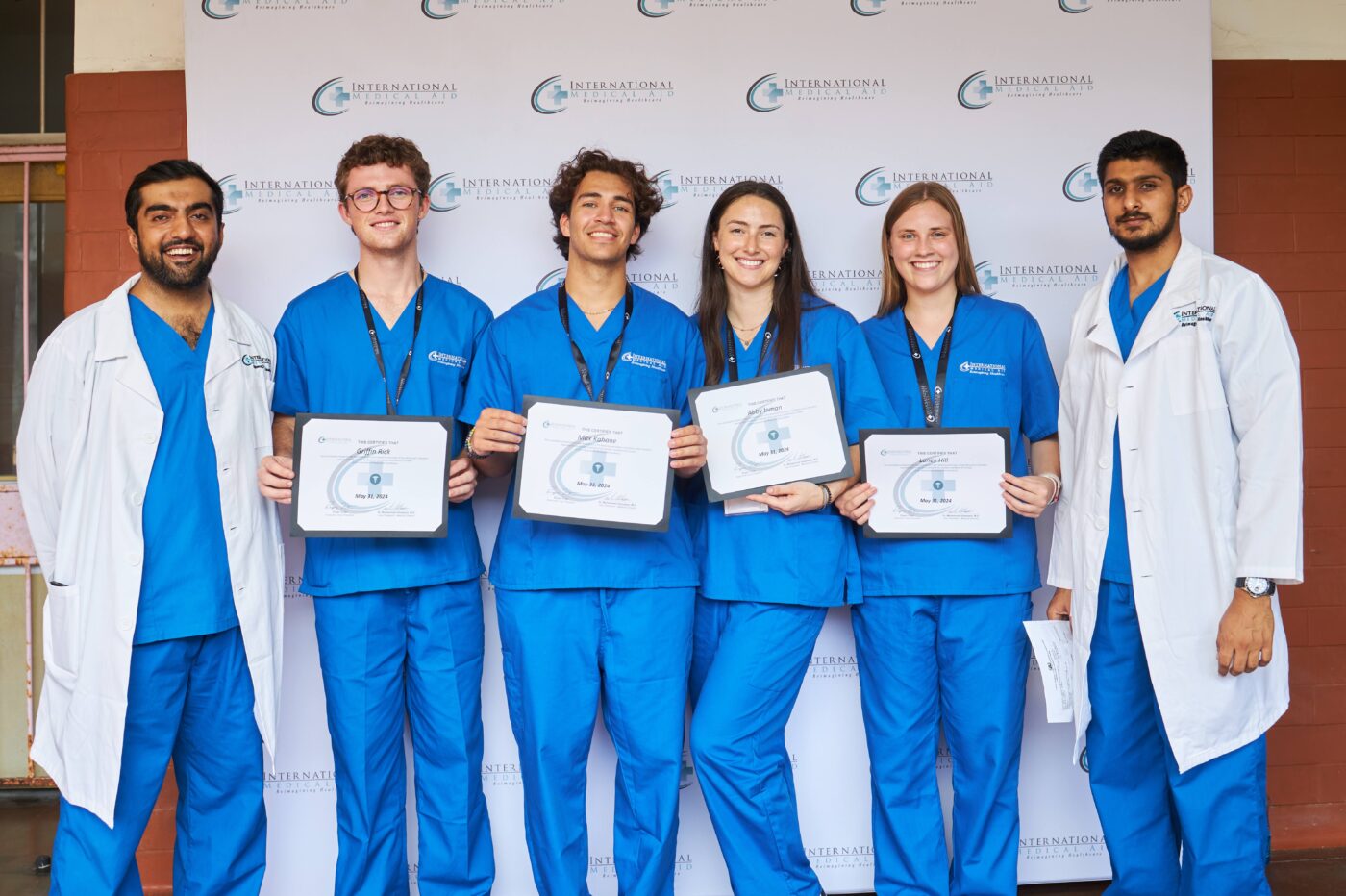
Opportunities for High School Students with IMA Pre-Med Track Programs
International Medical Aid (IMA) offers high school internships that are specifically designed to immerse students in the medical field early on, providing a substantial foundation for those aiming to pursue top pre-med programs. These internships, detailed on IMA’s website, include opportunities to network and grow within the healthcare community, as described in “How High School Pre-Med Program Participants Can Network and Grow”.
Additionally, IMA’s pre-clinical programs empower students by helping them discover their passion and purpose in medicine, as outlined in “How Pre-Clinical Programs Empower High Schoolers to Find Their Passion and Purpose”. For high schoolers considering these paths, IMA provides a comprehensive guide to participating in pre-med programs, available at “A High Schooler’s Guide to Participating in Pre-Med Programs”.
Each program is designed to equip students with the knowledge and experiences necessary to thrive in competitive pre-med environments, enhancing their applications and readiness for future medical studies.
Those interested in learning how to become a successful high school medical intern can find additional resources and tips at “How to Become a Successful High School Medical Intern”. Through these programs, IMA is committed to fostering the next generation of medical professionals by providing them with early, impactful engagements in the healthcare field.
Choosing the Right Pre-Med School
Choosing the right pre-med school involves more than examining rankings. It requires a thorough exploration into each program’s ability to provide a rich educational experience. This exploration should consider several factors to ensure you are building a solid foundation for medical school.
Medical School Admission Rates
One primary consideration is the history of medical school admissions from potential universities. Understanding the rate at which graduates are accepted into medical schools provides a realistic gauge of a program’s effectiveness. Researching a school’s medical school admissions history can involve checking if the institution publicly shares relevant statistics or looking into class profiles of medical schools to identify feeder undergraduate programs. These insights can reveal which universities have strong track records in preparing students for medical education.
Academic and Advisory Support
Pre-med advising is crucial in preparing for medical school. Effective pre-med programs feature knowledgeable advisors who guide students through the complexities of medical school applications, from course and major selection to MCAT preparation and interview readiness. Engaging with advisors early and often can help tailor your academic and extracurricular planning to meet medical school requirements.
Research and Clinical Opportunities
The availability of research and publication opportunities speaks volumes about a university’s commitment to pre-med education. Institutions that facilitate undergraduate involvement in research enhance learning and bolster medical school applications. Being able to contribute to significant research and potentially earn authorship in publications can set candidates apart in the highly competitive medical school admission process.
Clinical experience is equally important, offering firsthand insights into patient care settings. Schools that offer or are close to clinical opportunities such as hospitals, clinics, or volunteer organizations provide students with the necessary exposure to real-world medical environments, confirming their interest in medicine and developing crucial skills for their future careers.
Curriculum
The rigor of the curriculum is another significant consideration. A demanding academic program prepares students not just for the MCAT, but for the challenges of medical school as well. Universities that maintain high academic standards and rigorous coursework help ensure that their pre-med students are well-prepared for the next steps in their medical education.
The choice of a pre-med program should be guided by thorough research into its ability to support your long-term career goals in medicine. Consider the rate of medical school admissions, the robustness of advising services, the availability of research and clinical opportunities, and the rigor of the academic environment when making your decision. By understanding what makes pre-med programs effective, you can select a path that best fits your career aspirations in the medical field, ensuring a well-rounded and supportive educational experience.
What to Consider in a Pre-Med Program
Academic Strength
- Selectivity: Highly selective programs tend to attract high-performing students who can create a stimulating learning environment.
- Strength of the Science Curriculum: Look for programs with strong science departments, particularly in biology, chemistry, physics, and organic chemistry.
- MCAT Preparation: Does the program offer dedicated MCAT preparation resources or advising?
Pre-med Support
- Pre-med Advising: Strong advising programs with dedicated advisors who can guide students through course selection, research opportunities, and medical school applications.
- Mentorship Programs: Are there opportunities for mentorship from faculty members, physicians, or alumni who can provide guidance and support?
- Undergraduate Research: Access to research opportunities allows students to gain practical experience, strengthen their applications, and explore potential medical specialties.
Outcomes
- Medical School Acceptance Rates: The percentage of pre-med graduates who gain admission to medical school is a key indicator of a program’s success in preparing students.
- Residency Placement: Track record of graduates securing residencies in top programs, particularly in desired specialties.
Other Factors
- Cost and Financial Aid: Consider tuition, fees, and the availability of scholarships and financial aid.
- Location and Size: Urban or rural setting, large or small campus environment – find what suits your learning style and preferences.
- Special Programs: Unique offerings like early assurance programs to specific medical schools or combined MD/PhD programs can be a deciding factor.
Top Pre-Med Schools Overview
Each school listed below has been evaluated based on med school acceptance rates, research opportunities, advising quality, and clinical experiences available to students.
Here’s what you need to know about each:
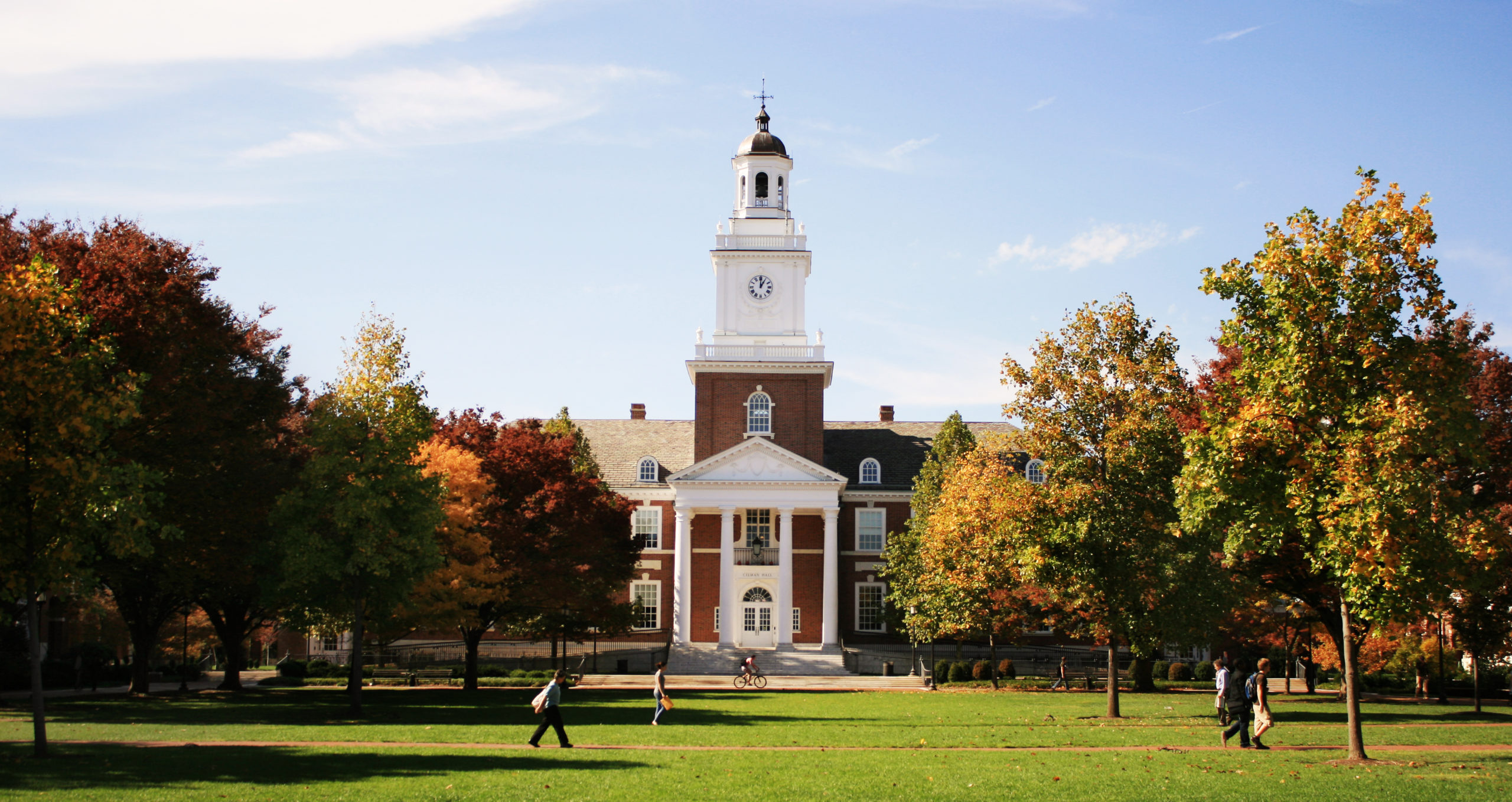
Johns Hopkins University
Overview of Johns Hopkins University's Strength in Science
Johns Hopkins University (JHU) is renowned for its robust science departments and comprehensive research facilities. Here we explore the strengths of these departments, their locations, and their significant contributions to science and research.
Department Strengths and Locations
Department of Biology
Location: Mudd Hall 144, 3400 N Charles St, Baltimore, MD 21218
Focus: This department emphasizes diverse biological disciplines, contributing significantly to advancements in genetic and cellular biology.
JHU Program in Cell, Molecular, Developmental Biology, and Biophysics (CMDB)
Location: 3400 N Charles St, Baltimore, MD 21218
Focus: The CMDB program integrates various scientific disciplines to foster an understanding of biological mechanisms at molecular and cellular levels.
JHU Chemistry-Biology Interface Program
Location: 138 Remsen Hall, 3400 N Charles St, Baltimore, MD 21218
Focus: This program facilitates the exploration of chemistry and biology as interconnected sciences, pioneering research in biochemical processes.
JHU Program in Environmental Science & Studies
Location: 3400 N Charles St, Baltimore, MD 21218
Focus: Addressing global environmental challenges, this program combines field studies with policy and technology studies to develop sustainable solutions.
JHU Program in Molecular Biophysics (PMB)
Location: Jenkins Hall, Suite 201, 3400 N Charles St, Baltimore, MD 21218
Focus: PMB explores the structure and function of biological molecules, advancing our understanding of biochemical mechanisms.
Johns Hopkins University Pre-Med and Medical School
Johns Hopkins University (JHU) is renowned for its robust academic offerings and prestigious position in the world of medical education. Here, we explore the comprehensive resources, rigorous curriculum, and unique opportunities that JHU provides to its pre-med students, alongside insights into the highly selective nature of its medical school.
Comprehensive Pre-Med Resources at JHU
MCAT Preparation: JHU offers extensive resources and preparatory courses designed to optimize students’ performance on the MCAT, thus enhancing their competitiveness for medical school admissions.
Undergraduate Science Curriculum: The curriculum at JHU is meticulously structured to integrate foundational scientific knowledge with cutting-edge research, preparing students for academic and professional success across various scientific and medical fields.
Mentorship Opportunities: JHU connects pre-med students with experienced professionals and alumni, providing crucial mentorship and networking opportunities that are pivotal for career development in medicine.
Undergraduate Research Opportunities: With its strong ties to Johns Hopkins Medicine, JHU grants medical students access to exceptional research facilities and opportunities, encouraging them to engage in practical, hands-on research experiences under the guidance of leading scientists.
Advising Quality: JHU is recognized for its high-quality academic advising, ensuring that students receive the support and guidance needed to navigate the challenges of pre-med studies effectively.
Johns Hopkins Medical School: Selectivity and Excellence
Medical School Acceptance Rate: While JHU’s undergraduate programs boast a high acceptance rate into medical schools, Johns Hopkins Medical School itself is known for its low acceptance rate of around 4-5%, reflecting its status as one of the most selective medical schools in the country.
Residency Placement Statistics: Graduates from JHU’s medical school find placements in some of the nation’s top residency programs, demonstrating the high caliber of training and education provided.
Alumni Medical Career Success: Alumni of JHU are highly distinguished in various medical fields, highlighting the excellence of the university’s medical programs.
Tuition and Financial Aid: Financial support and scholarships are available to help manage the costs associated with pre-med studies, making JHU accessible to a diverse range of students.
Campus Environment: Located in the urban setting of Baltimore, JHU offers a dynamic environment with plentiful clinical and research opportunities, enriching students’ educational experiences.
Unique Opportunities and Programs
Unique Pre-Med Programs: JHU offers specialized tracks and exclusive programs like the early assurance medical school program, which guarantees medical school admission for qualifying undergraduates, allowing them to secure their future in medicine early in their academic journey.
Early Assurance Medical School: This initiative provides high-achieving students with early admission to medical school, enabling them to focus entirely on their undergraduate studies without the uncertainty of medical school applications.
By integrating comprehensive pre-med resources with the rigorous and selective nature of its medical school, Johns Hopkins University remains at the forefront of medical education, continually fostering the next generation of medical professionals and researchers.
Each of these components underscores Johns Hopkins University’s commitment to fostering an environment of academic excellence and professional development, particularly in the sciences and medical fields.
America's First Research University: Johns Hopkins University
As the inaugural research university in the United States, Johns Hopkins University (JHU) has been at the forefront of academic excellence and groundbreaking research since its establishment in 1876. Here’s an in-depth look at various facets of this prestigious institution, which continues to shape the future through innovation and a steadfast commitment to improving global conditions.
Historical Significance and Academic Vision
Johns Hopkins University, in Baltimore, Maryland, and established in 1876 by Daniel Coit Gilman, stands as America’s first research university. It was founded on the principle that teaching and research are interdependent, with a commitment to both excellence in education and leading-edge research.
Johns Hopkins has revolutionized higher education in America and influenced countless other institutions worldwide. It was founded with a vision to foster both the advancement of individual scholars and the fields they study. This philosophy has nurtured the university’s growth into a world leader in both education and research, boasting nine academic divisions and numerous interdisciplinary studies, facilitated by the Applied Physics Laboratory and other centers.
Academic Excellence and Rankings
Johns Hopkins is renowned for its rigorous academic environment and diverse programs. It ranks No. 7 on the U.S. News & World Report list of best colleges for 2022-23, reflecting its commitment to student excellence and diversity. The university’s notable graduate programs in health sciences, public health, and engineering consistently rank among the nation’s best. For instance, the School of Nursing’s DNP program ranks No. 1, and the Bloomberg School of Public Health is rated the top public health school in the country.
Research Innovations and Achievements
Johns Hopkins is a pioneer in global research, leading initiatives that span across 70 countries. The university has made significant contributions in various fields including health, science, engineering, and the humanities. Notable achievements include the development of water purification techniques, genetic engineering advancements, and innovations in medical treatments such as the first successful treatment for sickle cell anemia.
The university’s dedication to research is unmatched, with its faculty and students making significant advances in various fields. Johns Hopkins has led in total research and development spending in the U.S., maintaining this position for over four decades. The impacts of its research are profound, ranging from the creation of the first artificial “blue baby” operation to the development of the road map for exploring the genetic code. The ongoing research spans across disciplines including medical sciences, public health, engineering, international studies, and the humanities.
Economic and Community Impact
As Maryland’s largest employer, Johns Hopkins plays a crucial role in the local and national economy. It significantly contributes to job creation and actively engages in community development initiatives. Programs like HopkinsLocal and BLocal underline its commitment to fostering economic growth and community engagement in Baltimore and beyond.
Global Presence
With campuses and partnerships around the world, including in Italy and China, Johns Hopkins has a significant global footprint. It extends its research, medical, and educational influence across continents, reflecting a truly international presence.
Leadership and Vision for the Future
Under the leadership of President Ronald J. Daniels, Johns Hopkins focuses on enhancing interdisciplinary collaboration, expanding student access, and strengthening community ties. These efforts are part of a strategic vision that aims to prepare the university for future challenges while continuing to lead in academic and research excellence.
Nobel Laureates and Notable Alumni
The university has produced 29 Nobel Prize winners among its graduates and faculty. These luminaries have made groundbreaking contributions in physics, medicine, economics, and peace, reinforcing Johns Hopkins’s status as a breeding ground for profound academic and professional achievement.
Johns Hopkins’ commitment to excellence is also evident in its association with numerous Nobel laureates who have made significant contributions to science and humanity. From Woodrow Wilson to Adam Riess, these individuals highlight the university’s impact on global scholarship and research.
Student Life and Activities
Johns Hopkins offers a vibrant campus life with over 450 student-run organizations, numerous varsity and club sports, and extensive opportunities for student engagement in community service and leadership roles. The university is dedicated to fostering a comprehensive educational experience that encourages students to pursue diverse interests beyond their academic studies.
Johns Hopkins University is not just an institution of higher learning but a beacon of knowledge, innovation, and community commitment. Its continued dedication to the advancement of both individuals and global society cements its status as a leading educational and research institution, making it an exemplary model for universities worldwide. As it approaches its 150th anniversary, Johns Hopkins stands ready to face future challenges with the same zeal and rigor that have characterized its storied past.
Financial Aid and Scholarships
Johns Hopkins is committed to making education accessible through substantial financial aid programs and scholarships. The university provides millions in need-based grants and other financial support to ensure talented students from all economic backgrounds can achieve a Hopkins education.
Johns Hopkins University remains a cornerstone of higher education and research, with a steadfast dedication to impacting the world. Its blend of rigorous academics, groundbreaking research, and a dynamic community environment makes it a pivotal institution for aspiring scholars and leaders.
Academic Divisions and Strengths
Johns Hopkins is home to several highly ranked academic divisions, emphasizing its strength in both undergraduate and graduate education:
Krieger School of Arts and Sciences offers robust programs in natural sciences, social sciences, and humanities.
Whiting School of Engineering is recognized for its top-ranked biomedical engineering program.
Bloomberg School of Public Health and School of Nursing lead with top national rankings in their fields.
Carey Business School and School of Education both provide innovative and cutting-edge educational programs.
Global Presence and Leadership
With a global footprint, Johns Hopkins operates campuses in Bologna, Italy, and Nanjing, China, reflecting its commitment to international education and global policy impact. The leadership under President Ronald J. Daniels continues to foster an environment of interdisciplinary collaboration and innovation.
Community Engagement and Impact
Johns Hopkins is deeply intertwined with the Baltimore community through initiatives like HopkinsLocal, which aims to boost local hiring and economic growth. The university’s commitment extends globally, affecting economic and social change through education and innovation.
Facilities and Resources
The university boasts extensive resources including the Sheridan Libraries, specialized research facilities, and innovative labs. The Peabody Institute and the Applied Physics Laboratory are among the key facilities that provide students and faculty with unparalleled opportunities for learning and research.
Achievements in Athletics
Johns Hopkins has a rich athletic tradition, particularly in lacrosse, where the Blue Jays have claimed 44 national titles. The university competes in NCAA Division I for lacrosse and Division III for other sports, emphasizing both competitive excellence and academic integrity.
For more information about Johns Hopkins take a look at our How To Get Into Johns Hopkins School Of Medicine Guide.

Harvard University
Harvard University is consistently ranked among the top universities in the world, and its science department is no exception. The science programs at Harvard are world-renowned for their rigor and for the quality of instruction. Harvard faculty are at the forefront of scientific research, and students have the opportunity to learn from and collaborate with some of the brightest minds in the field.
MCAT preparation resources: Harvard doesn’t have a dedicated MCAT prep program, but the university offers a wealth of resources that can help students prepare for the exam. These resources include practice tests, MCAT prep courses offered through the Harvard Extension School, and advising from pre-med advisors.
Undergraduate science curriculum: The undergraduate science curriculum at Harvard is challenging and rigorous. Students will take courses in biology, chemistry, physics, math, and other sciences. The curriculum is designed to provide students with a strong foundation in the scientific principles that are essential for success in medical school.
Pre-med advising services: Harvard has a team of pre-med advisors who can help students develop their academic plan, choose the right courses, and prepare for medical school applications. Advisors can also provide guidance on extracurricular activities and research opportunities.
Mentorship opportunities: There are many mentorship opportunities available for pre-med students at Harvard. Students can be mentored by faculty members, physicians, and other medical professionals. These mentors can provide students with guidance, support, and advice.
Undergraduate research opportunities: Harvard offers a wide range of undergraduate research opportunities in the sciences. These opportunities allow students to work alongside faculty members on cutting-edge research projects. Research experience can be a valuable asset for medical school applications.
Medical school acceptance rate: The acceptance rate to Harvard Medical School is very low. In recent years, the acceptance rate has been around 4%. However, students who are accepted to Harvard College have a significant advantage in the admissions process for Harvard Medical School.
Residency placement statistics: Harvard Medical School has a very high residency placement rate. Over 90% of graduates match into their top choice residency program.
Alumni medical career success: Harvard Medical School alumni are highly successful in their medical careers. They go on to practice medicine at top hospitals and academic institutions around the world.
Tuition and financial aid: Harvard is a private university, and tuition is expensive. However, Harvard offers a generous financial aid program that meets the full demonstrated need of all admitted students.
Campus environment: Harvard’s campus is located in Cambridge, Massachusetts, a vibrant and walkable city. The campus is home to a variety of cultural institutions, including museums, libraries, and theaters.
Unique pre-med programs: Harvard does not have any unique pre-med programs per se, but the resources available and the caliber of instruction set it apart. However, the Harvard Extension School offers a pre-medical program for students who are not currently enrolled at Harvard College.
Early assurance medical school: Harvard College does not have an early assurance program for its medical school. However, students who are accepted to Harvard College have a significant advantage in the admissions process for Harvard Medical School. This is because Harvard Medical School gives preference to applicants who have strong academic records and who have demonstrated a commitment to medicine during their undergraduate years.
Harvard Extension School Premedical Program Overview
Harvard Extension School, a division of Harvard University’s Division of Continuing Education, offers a comprehensive Premedical Program designed to prepare students for medical, dental, veterinary, or physician assistant schools. This program is meticulously crafted to provide students not only with the necessary scientific foundation but also with unique opportunities to make them competitive candidates for professional schools.
Overview & Benefits of the Premedical Program
The Harvard Extension School Premedical Program stands out for its rigorous curriculum and the high caliber of its faculty, many of whom also teach at Harvard Medical School and other Harvard-affiliated schools. Here’s what the program offers:
Challenging Core Science Courses: Taught by esteemed Harvard faculty, these courses are designed to provide the robust academic foundation required for success in medical and allied health schools.
Clinically Relevant Electives: These courses allow students to tailor their education to specific interests and career goals, enhancing their knowledge in areas directly relevant to their future professions.
Flexible Scheduling: Courses are available in the evenings and weekends, catering to the needs of part-time students who may be balancing commitments such as work or family.
Comprehensive Advising: From course selection to application strategies and obtaining sponsorship, personalized advising is provided to guide students through the complexities of preparing for professional school.
Clinical and Research Opportunities: Students have access to a variety of clinical and research opportunities, which are crucial for gaining practical experience and strengthening medical school applications.
Engaged Peer Community: The program fosters a collaborative and supportive environment where students can connect with peers, share experiences, and network with Harvard alumni.
Curriculum Tracks
The Premedical Program offers two distinct tracks to cater to diverse professional goals:
Premedical Program Track: This track is ideal for those aiming for allopathic and osteopathic medical schools, as well as dental and veterinary schools. Courses are offered on campus during evenings and weekends.
Pre-Physician Assistant Track: Designed for future physician assistants, this track offers flexible course formats, including online options and on-campus classes available at night or over the weekend.
Each student works with program advisors to create a customized curriculum that best fits their academic background and career aspirations.
Faculty and Mentorship
The faculty in the Premedical Program are drawn from across Harvard, including the Medical School, School of Dental Medicine, and the TH Chan School of Public Health. This provides students with exposure to leading academic and clinical professionals, enriching the learning experience.
Student Community and Outcomes
Students of the Harvard Extension School Premedical Program are part of a vibrant community, gaining insights from peers and engaging in enriching activities outside the classroom. Graduates have successfully gained admission to prestigious medical and dental schools across the United States, such as Brown University, Emory University, Johns Hopkins, and Weill Cornell Medical College.
Cost & Financial Aid
The cost of the program varies based on the number of courses a student needs to fulfill their premedical requirements. Harvard Extension School offers competitive tuition rates and financial aid options, including federal aid, grants, and the possibility of an interest-free payment plan to help manage the costs of education.
Admission Process
Admission to the Premedical Program is selective and is open to individuals who have completed an undergraduate degree from an accredited institution and demonstrate proficiency in English. Applications are welcomed annually between January and April.
The Harvard Extension School Premedical Program is a gateway to advanced medical education, combining Harvard’s academic rigor with flexible learning options to prepare the next generation of healthcare leaders. Whether you’re starting your journey in the summer or planning for a fall start, this program offers the tools and support needed to succeed in the competitive field of healthcare. Additional information about Harvard is available in our How to Get Into Harvard Medical School Definitive Guide.
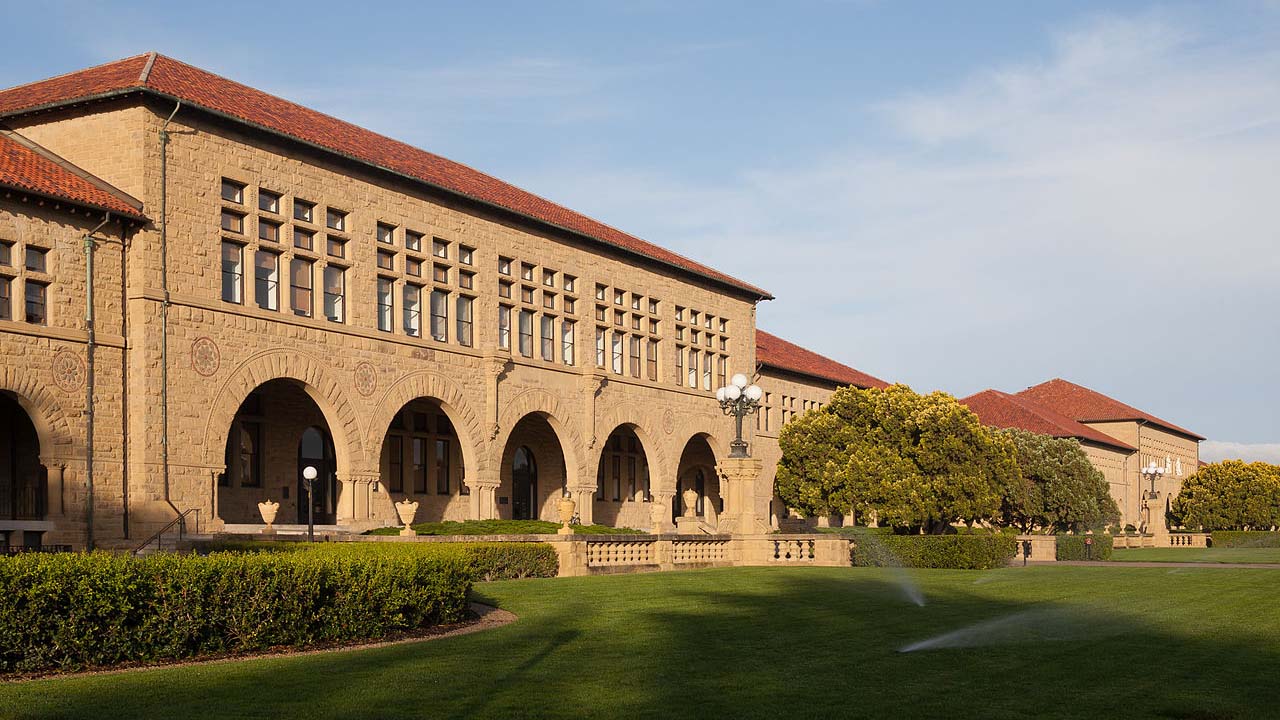
Stanford University
At Stanford University, students aspiring to enter medical school are provided with a robust support system through the Office of Academic Advising. Unlike many universities, Stanford does not offer a specific pre-med major. Instead, students are encouraged to pursue any major that interests them while still fulfilling the necessary prerequisites for medical school.
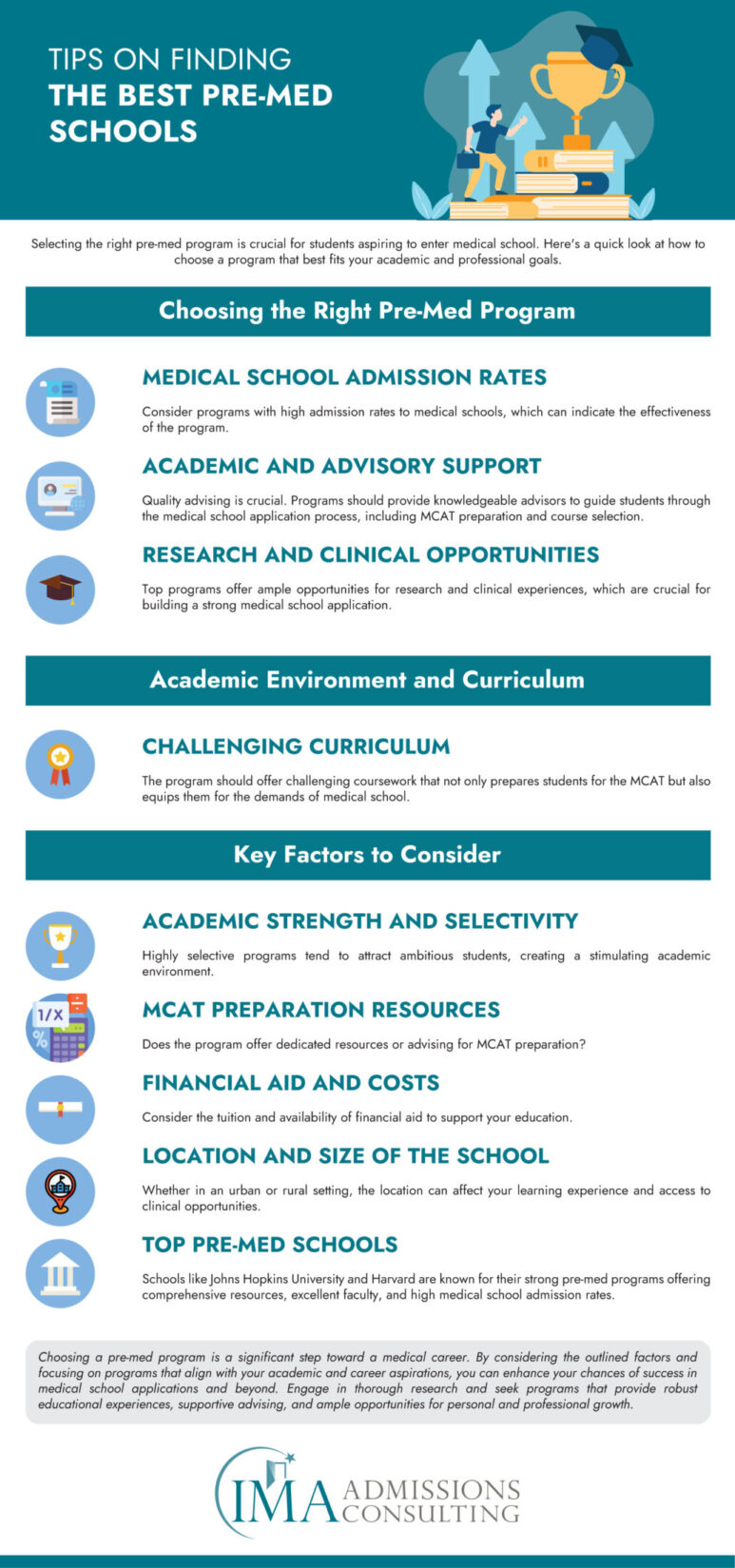
Planning for Medical School at Stanford
Flexible Academic Paths: Stanford allows students aiming for health professions to major in any discipline. This approach encourages students to broaden their intellectual horizons and pursue diverse interests, which is advantageous for developing a well-rounded application for medical school.
Getting Pre-Med Advice
Dedicated Pre-Med Advisors: Stanford offers specialized pre-med advising to help students and alumni navigate the path to medical school. Advisors assist with course planning, long-term goals, and gaining relevant experience. They are available for one-on-one sessions, open office hours, and group settings.
Regular Updates and Resources: Students and alumni can join the pre-med mailing list and the Stanford Pre-med Association (SPA) mailing list for updates on upcoming events, announcements, and opportunities.
Pre-Med Canvas Site: Exclusive to current Stanford students, this online resource provides additional support and information. Students can request access by submitting a specific webform.
Specialized Support
Mock Interviews and Application Guidance
In the autumn, Judy Colwell, former Assistant Director of Admissions at Stanford University School of Medicine, is available to discuss the application process, school selection, and interview preparation. This opportunity is invaluable for students and alumni in the midst of applying to medical school.
Comprehensive Support Network
In addition to pre-med advising, Stanford’s Office of Vice Provost for Undergraduate Education (VPUE) offers a number of resources aimed at enriching the undergraduate experience. This includes research opportunities, independent projects, tutoring, support services, and more, all designed to prepare students for successful careers and meaningful postgraduate endeavors.
VPUE Programs
Bing Overseas Studies, Haas Center for Public Service, and Program in Writing and Rhetoric are just a few of the initiatives that support Stanford’s commitment to a comprehensive and integrated educational experience.
Stanford’s approach to pre-medical education is characterized by flexibility, extensive support, and a commitment to individualized student success. Whether you are just starting your journey or are deep into your pre-medical preparations, Stanford offers the resources and guidance to help you succeed on your path to medical school.
Stanford University, much like Harvard, boasts a phenomenal science department.
Strengths of Stanford Science Department
- Renowned Faculty: Stanford professors are leaders in their respective scientific fields, conducting groundbreaking research and offering exceptional instruction.
- Interdisciplinary Focus: Stanford encourages collaboration between science departments, fostering a well-rounded understanding of scientific concepts.
- Cutting-Edge Facilities: Stanford provides access to state-of-the-art labs and research equipment.
Pre-Med Resources at Stanford
MCAT Preparation: Stanford doesn’t have a dedicated MCAT program, but offers resources like practice tests and advising from pre-med advisors. The Stanford Continuing Studies program might have MCAT prep courses as well.
Curriculum: The curriculum is rigorous, covering core science subjects like biology, chemistry, physics, and math. It emphasizes critical thinking and preparing students for further scientific exploration.
Pre-Med Advising: Advisors help students navigate academics, course selection, and medical school applications. They can also offer guidance on extracurricular activities and research opportunities.
Mentorship: Stanford fosters mentorship opportunities through faculty, physicians, and other medical professionals who provide guidance and support.
Research: Undergraduate research is highly encouraged. Working alongside faculty on real-world projects strengthens applications and offers valuable experience.
Medical School Acceptance Rate: Acceptance to Stanford Medical School is extremely competitive, typically around 5%. However, Stanford undergrads have an advantage in the admissions process.
Residency Placement: Stanford Medical School graduates boast a very high residency placement rate, often matching into their top choices.
Alumni Success: Stanford Medical School alumni are leaders in various medical fields, working at top hospitals and institutions worldwide.
Financial Aid: Stanford offers generous financial aid, meeting the full demonstrated need of admitted students.
Campus Environment: Stanford’s campus is situated near Palo Alto, California, a vibrant and innovative hub close to Silicon Valley. It offers a blend of urban amenities and natural beauty.
Unique Pre-Med Programs: Stanford doesn’t have specific pre-med programs, but the focus on interdisciplinary study and cutting-edge research sets it apart.
Early Assurance Medical School: Stanford doesn’t offer an early assurance program for its medical school. However, strong academic performance and demonstrated commitment to medicine during undergrad improve your chances for admission.
For more comprehensive insights and strategies tailored to successfully navigating the application process for Stanford Medical School, be sure to visit the guide on “How to Get Into Stanford Medical School”. This resource offers valuable information and tips to help prospective students understand what Stanford looks for in candidates, enhancing your preparation and potential for admission.
University of Pennsylvania
University of Pennsylvania Premedical Program Overview
The University of Pennsylvania (UPenn) offers a robust premedical program, providing aspiring medical students with the necessary academic preparation and advising support to excel in the demanding medical school application process. UPenn’s premedical track is designed to equip students with a strong foundation in the core scientific disciplines and requisite experiences that are valued by medical schools.

Core Pre-Med Courses
UPenn’s premedical curriculum includes comprehensive coursework that satisfies the basic requirements of most medical schools. It’s important for students to consult with academic and pre-health advisors to tailor their course selections based on their individual academic background and medical school goals.
Biology
Semester 1: BIOL 1101 or BIOL 1121 with BIOL 1123 Lab
Semester 2: BIOL 1102 or any 2000-Level+ Biology Lecture with BIOL 1124 Lab
General Chemistry
Semester 1: CHEM 1011 or CHEM 1012, with CHEM 1101 Lab
Semester 2: CHEM 1021 or CHEM 1022 with CHEM 1102 Lab
Physics
Semester 1: PHYS 0101 or PHYS 0150
Semester 2: PHYS 0102 or PHYS 0151
Organic Chemistry
Semester 1: CHEM 2411 with CHEM 2412 Lab
Semester 2: CHEM 2421 with CHEM 2422 Lab
Biochemistry
One Semester: BIOL 2810 or CHEM 2510
English & Writing
Two Semesters: Writing Seminar; Any ENGL or COML course
Math & Statistics
One Semester Each: MATH 1300 or higher for math; STAT 1110 or another statistics course
Pre-Med Advising and Support
UPenn provides extensive pre-med advising services to guide students through their pre-med journey:
Individual Advising: One-on-one sessions with pre-health advisors to discuss course planning, experience building, and application strategies.
Group Sessions and Workshops: Offered throughout the year to address common pre-med questions and prepare students for medical school applications.
Pre-Med Community: Opportunities to engage with fellow pre-med students through academic and social events, enhancing the support network available to students.
Access to Clinical and Research Opportunities
Hospital Affiliations: UPenn’s close affiliations with top-tier hospitals such as the Hospital of the University of Pennsylvania and the Children’s Hospital of Philadelphia offer students ample clinical shadowing and research opportunities.
Research Opportunities: Availability of diverse research options across various biomedical fields, facilitating hands-on experience that is critical for a strong medical school application.
Challenges and Considerations
Competitive Environment: The pre-med track at UPenn is highly competitive, with rigorous academic expectations that can contribute to a high-stress environment.
Grade Deflation: Concerns about grade deflation may necessitate additional effort from students to maintain an exemplary GPA.
Cost: Financial considerations are significant, given the high tuition fees, which can add to the financial burden of medical school.
The University of Pennsylvania’s premedical program is designed to provide comprehensive preparation for medical school through rigorous academics, extensive advising, and plentiful clinical and research opportunities. Prospective students should consider both the benefits and challenges of the program to make an informed decision about their pre-medical education path at UPenn.
UPenn Science Department Strengths
Top-Ranked Programs: UPenn consistently ranks high in national rankings for various science programs, particularly in bio-related fields like biology, chemistry, and biochemistry.
World-Class Faculty: UPenn professors are leading researchers who are actively shaping their fields. This means you’ll learn from the best and have opportunities to participate in groundbreaking research.
Collaborative Environment: UPenn fosters collaboration across science departments, allowing you to develop a well-rounded scientific foundation.
Pre-Med Resources at UPenn
MCAT Preparation: UPenn doesn’t have a dedicated MCAT program, but the university offers resources like practice tests and advising from pre-med advisors. The College of Liberal and Arts (College) or the School of Engineering and Applied Science (SEAS) might have MCAT prep resources as well, depending on your specific program.
Curriculum: The pre-med curriculum is rigorous, providing a strong foundation in biology, chemistry, physics, and math. It emphasizes critical thinking and preparing you for the MCAT and medical school.
Pre-Med Advising: UPenn has a dedicated pre-med advising office that helps students navigate academics, course selection, and medical school applications. They can also advise on extracurricular activities and research.
Mentorship: UPenn fosters mentorship opportunities through faculty advisors, physicians, and other healthcare professionals who provide guidance and support.
Research: Undergraduate research is highly encouraged. Working alongside faculty on real-world projects strengthens applications and offers valuable experience.
Medical School Acceptance Rate: Acceptance to the Perelman School of Medicine at UPenn is highly competitive, typically around 3-4%. However, UPenn undergrads have an advantage in the admissions process.
Residency Placement: Perelman School of Medicine graduates boast a very high residency placement rate.
Alumni Success: UPenn medical school alumni are leaders in various medical fields, working at top hospitals and institutions worldwide.
Financial Aid: UPenn offers generous financial aid, meeting the full demonstrated need of admitted students.
Campus Environment: UPenn’s campus is located in Philadelphia, Pennsylvania, a vibrant and historic city with a strong cultural scene. This urban environment offers many advantages.
Unique Pre-Med Programs: UPenn doesn’t have specific pre-med programs, but the emphasis on research and strong connection to the School of Medicine set it apart.
Early Assurance Medical School: UPenn doesn’t offer an early assurance program for its medical school. However, strong academic performance and demonstrated commitment to medicine during undergrad improve your chances for admission.
University of Pennsylvania offers a robust pre-medical program that effectively prepares students for medical school through a combination of rigorous academics, extensive advising, and plentiful clinical and research opportunities. Whether you’re aiming to strengthen your foundational science knowledge or seeking comprehensive support through the medical school application process, UPenn provides a dynamic and supportive environment to foster your academic and professional growth. Prospective students should consider both the benefits and challenges of the program to make an informed decision about their pre-medical education path at UPenn.
Columbia University
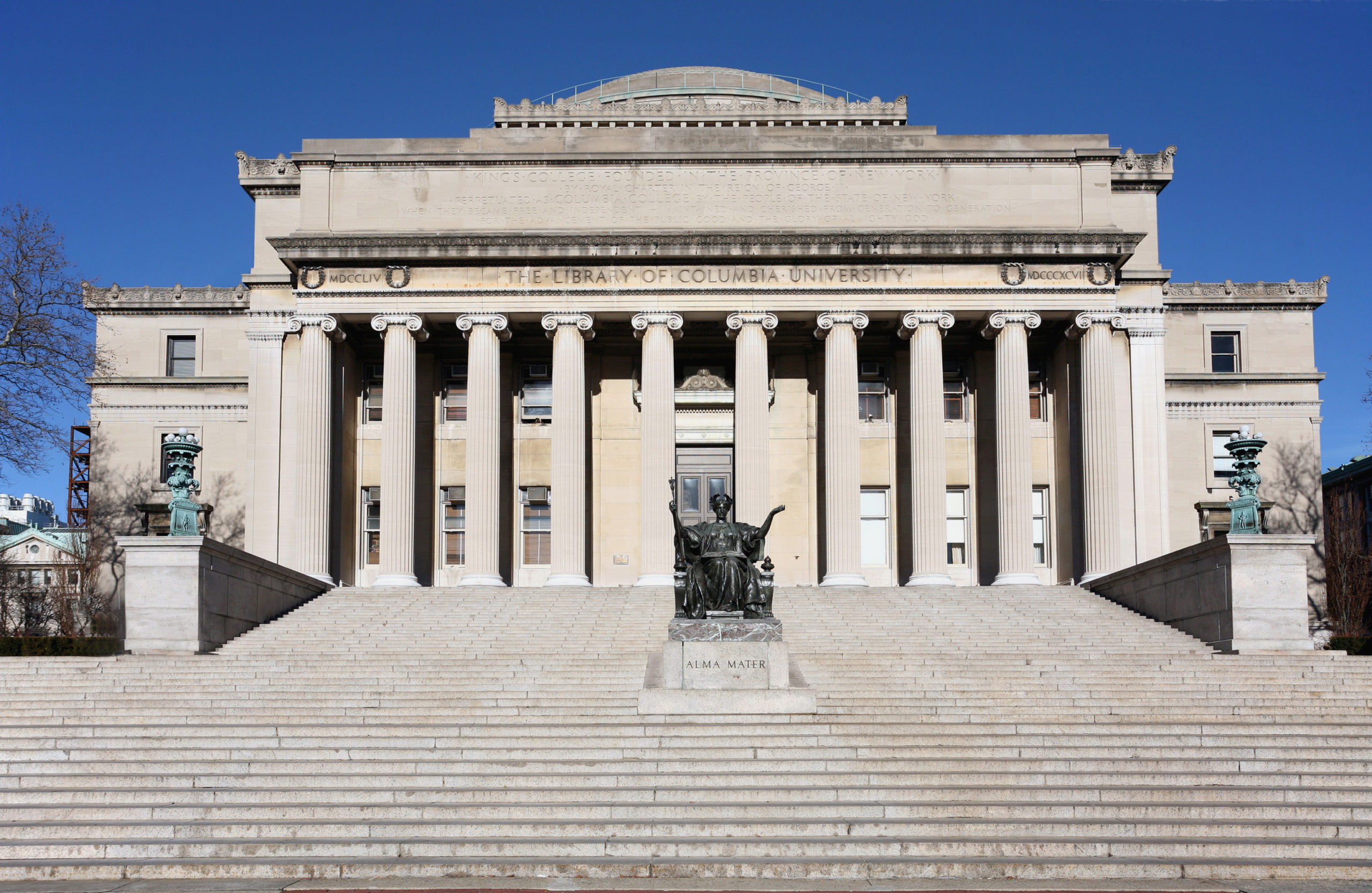
Columbia University Postbaccalaureate Premedical Program Overview
Columbia University’s Postbaccalaureate Premedical Program is strategically designed for those seeking a career in medicine, offering an in-depth pathway to medical, dental, veterinary, or physician assistant schools. Situated in New York City, the program leverages its prime location to provide students with unparalleled access to leading medical research centers and hospitals.
Clinical and Research Opportunities
Columbia’s Postbac Premed students have access to a multitude of clinical and research positions that not only fulfill the program’s requirements but also significantly bolster their medical school applications. These positions are crucial for gaining hands-on experience in the medical field, understanding patient care, and contributing to significant medical research. The program mandates 120 hours of clinical or research experience, with a minimum of 90 hours in patient-facing roles.
Program Requirements and Support
To qualify for a committee letter of recommendation—a pivotal component of the medical school application—students must complete the required clinical hours by the end of their organic chemistry/biology year. This strategic timing allows students to focus on their most demanding studies without additional external pressures.
Resources and Advising
GS Mentor Program: This initiative pairs new students with experienced peers based on major, interests, and backgrounds to help guide them through the complexities of the premed pathway.
Postbac 101: This series of workshops addresses common pitfalls and best practices for medical school applicants, offering insights into how to stand out as a competitive candidate.
Advising Appointments & Walk-in Hours: The Postbac Premed office provides comprehensive advising covering a wide range of issues pertinent to medical school preparation and application.
Workshops and Information Sessions: These are designed to supplement classroom learning and provide detailed information about various aspects of medical school applications, including glide year planning and application strategies.
Help Rooms: Available throughout the academic year, these provide support in core subjects such as math, chemistry, physics, statistics, and writing.
Academic Resource Center (ARC): The ARC aids the diverse nontraditional student body of the School of General Studies in achieving academic success by offering resources tailored to each student’s unique background and educational experiences.
Unique Aspects of Columbia's Postbac Premed Program
Columbia’s Postbac Premed program is distinguished by its robust network, extensive support systems, and deep integration with New York City’s vibrant medical community. These features not only prepare students for medical school but also immerse them in a dynamic environment that is conducive to professional growth and networking.
IColumbia University’s Postbaccalaureate Premedical Program is a comprehensive, resource-rich pathway for those aspiring to enter various fields within medicine. It is designed to equip students with the academic rigor, clinical experience, and professional guidance necessary for success in medical school and beyond.
Columbia University boasts a strong science department, but there are some nuances to consider compared to Harvard and Stanford:
Science Department Strengths
Renowned Faculty: Like other top universities, Columbia has prominent researchers who are leaders in their fields.
Broad Range of Specialties: Columbia offers a vast array of science programs, allowing you to delve into specific areas of interest beyond just pre-med foundational courses.
Collaboration with Medical School: Columbia’s College of Physicians and Surgeons (P&S) fosters collaboration between science departments and medical school resources, potentially providing unique research opportunities.
Pre-Med Resources
MCAT Preparation: Columbia doesn’t have a dedicated MCAT program, but resources are available. Pre-med advisors can guide you to practice tests and external prep courses.
Curriculum: The curriculum is challenging, encompassing core science requirements like biology, chemistry, physics, and math.
Pre-Med Advising: A dedicated pre-med advising office helps students navigate academics, course selection, and medical school applications. They can also advise on extracurricular activities and research.
Mentorship: Mentorship opportunities exist through faculty advisors, physicians, and other healthcare professionals.
Research: Undergraduate research is encouraged. While Columbia might not have the extensive research opportunities of Stanford or Harvard due to its urban setting, faculty connections and affiliation with P&S can be advantageous.
Medical School Acceptance Rate: Acceptance to Columbia P&S is highly competitive, typically around 4-6%. However, Columbia undergraduates have an advantage in the admissions process.
Residency Placement: Columbia P&S graduates have a very high residency placement rate.
Alumni Success: Columbia P&S alumni are leaders in various medical fields, working at top hospitals and institutions worldwide.
Financial Aid: Columbia offers generous financial aid, meeting the full demonstrated need of admitted students.
Campus Environment: Columbia’s campus is located in New York City, offering a vibrant and fast-paced urban environment with world-class cultural institutions.
Unique Pre-Med Programs: Columbia doesn’t have specific pre-med programs, but the strong connection to P&S and the urban environment fostering research collaborations in healthcare settings can be a unique advantage.
Early Assurance Medical School: Columbia College doesn’t offer an early assurance program for P&S. However, strong academic performance and demonstrated commitment to medicine during undergrad improve your chances for admission.
Remember, while Columbia’s science department might not be ranked as high overall as Harvard or Stanford, it excels in specific areas and offers a unique environment for pre-med students. More information about this university can be found here: How to Get Into Columbia Medical School: The Definitive Guide.
University of California, San Francisco (UCSF)
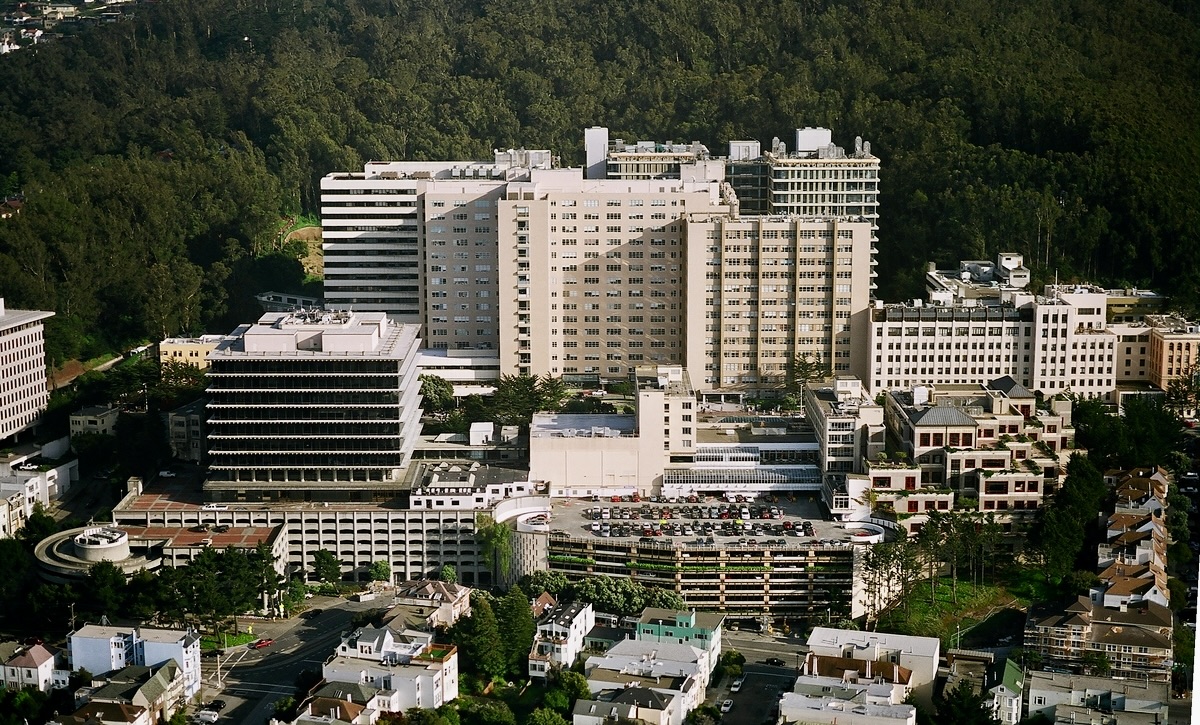
The University of California San Francisco (UCSF) is a great choice for pre-med students, particularly those interested in a research-focused and medically oriented environment. Here’s a breakdown of your questions:
Science Department Strength
UCSF boasts a world-class science department consistently ranked among the top in the nation, especially for life sciences relevant to pre-med journeys.
Renowned Faculty: UCSF faculty are leading researchers who are making groundbreaking discoveries in medicine, biology, and other health sciences.
Focus on Biomedical Sciences: UCSF’s strength lies in its research and professional programs in medicine, dentistry, nursing, and pharmacy. This focus permeates the undergraduate science curriculum, providing a strong foundation for medical school applications.
Collaboration with Medical School: As a part of the University of California system, UCSF has a world-renowned medical school (UCSF School of Medicine) right on its campus. This fosters collaboration between science departments and medical school resources, potentially providing unique research and learning opportunities.
Pre-Med Resources
MCAT Preparation: UCSF doesn’t have a dedicated MCAT preparation program. However, the university offers resources like pre-med advising, practice materials, and links to external MCAT prep courses.
Curriculum: UCSF offers a rigorous science curriculum that fulfills pre-med requirements. You’ll take courses in biology, chemistry, physics, math, and other sciences. The curriculum emphasizes critical thinking and research skills, preparing you not just for the MCAT but also for the rigors of medical school.
Pre-Med Advising: UCSF has a dedicated pre-health advising office that helps students navigate academics, course selection, and medical school applications. They can also advise on extracurricular activities, research opportunities, and the MCAT.
Mentorship: UCSF fosters mentorship opportunities through faculty advisors, physicians, and other healthcare professionals affiliated with UCSF’s medical school and various healthcare institutions.
Research: Undergraduate research is highly encouraged at UCSF. Given UCSF’s research focus, there are ample opportunities to work alongside leading researchers on real-world projects that could strengthen medical school applications.
Medical School Acceptance Rate: The acceptance rate to UCSF School of Medicine is highly competitive, typically around 3-4%. However, UCSF undergraduates have a slight advantage in the admissions process due to familiarity with the school and potential research experience.
Other Factors to Consider
Residency Placement: UCSF School of Medicine graduates have a very high residency placement rate, matching into top programs around the country.
Alumni Success: UCSF medical school alumni are leaders in various medical fields, working at top hospitals and institutions worldwide.
Financial Aid: UCSF offers financial aid, but it is a public university so out-of-state tuition can be expensive. Be sure to research scholarships and financial aid options.
Campus Environment: UCSF’s campus is located in San Francisco, a vibrant and expensive city. The urban environment offers a wealth of cultural and research opportunities but comes with a high cost of living.
Unique Pre-Med Programs: UCSF doesn’t have specific pre-med programs, but the emphasis on research and the close proximity to UCSF School of Medicine create a unique and advantageous environment for pre-med students.
Early Assurance Medical School: UCSF doesn’t offer an early assurance program for its medical school. However, strong academic performance, research experience, and a demonstrated commitment to medicine during undergrad can improve your chances for admission.
Overall, UCSF is an excellent choice for pre-med students who thrive in a research-oriented and medically focused environment. The close proximity to UCSF School of Medicine and the abundance of research opportunities can be a significant advantage for aspiring medical professionals.
UCSF School of Medicine Post Baccalaureate Program Overview
The UCSF School of Medicine offers a robust Post Baccalaureate Program designed to help students from underserved or disadvantaged backgrounds strengthen their credentials and prepare adequately for medical school. This program is particularly aimed at those who wish to enhance their academic records or need additional preparation before applying or reapplying to medical school.
Key Features of the Program
Intensive MCAT Review: To ensure that students are well-prepared for one of the most critical components of their medical school applications, the program provides an intensive review of MCAT materials.
Science Courses at UC Berkeley Extension: Students have the opportunity to enroll in science courses at UC Berkeley Extension, which helps bolster their scientific knowledge and academic transcripts.
Medical School Application Assistance: The program offers personalized assistance in the medical school application process, helping students navigate the complexities of applications and admissions.
Graduate Seminars and Workshops: Participants can attend graduate seminars that focus on health care issues in underserved communities and academic skills workshops designed to enhance their learning strategies and test-taking abilities.
Mentoring Opportunities: The program connects students with faculty and medical students through mentoring opportunities, providing guidance and support throughout their post-baccalaureate journey.
Healthcare Processes Improvement Project: Students participate in an interprofessional quality improvement project, supervised by UCSF faculty, where they learn practical skills in healthcare processes improvement.
Program Success and Impact
Since its inception in 1999, the UCSF School of Medicine Post Baccalaureate Program has demonstrated significant success in helping students gain admission to medical schools across the United States. An impressive 93% of students who complete the program and apply to medical school successfully matriculate into U.S. allopathic or osteopathic medical schools. Many alumni have also pursued degrees in public health or other allied health professions.
Alumni Success
Alumni of the program have successfully matriculated to prestigious institutions such as UC Davis, UCLA Drew, UCLA PRIME, and Michigan State University, illustrating the program’s effectiveness in preparing students for medical school and beyond.
The UCSF Post Baccalaureate Program stands as a cornerstone for aspiring medical students from diverse backgrounds, providing them with the necessary tools, knowledge, and support to excel in the field of medicine. For more information about programs at UCSF please take a look at our How to Get into UCSF School of Medicine Definitive Guide.
Duke University
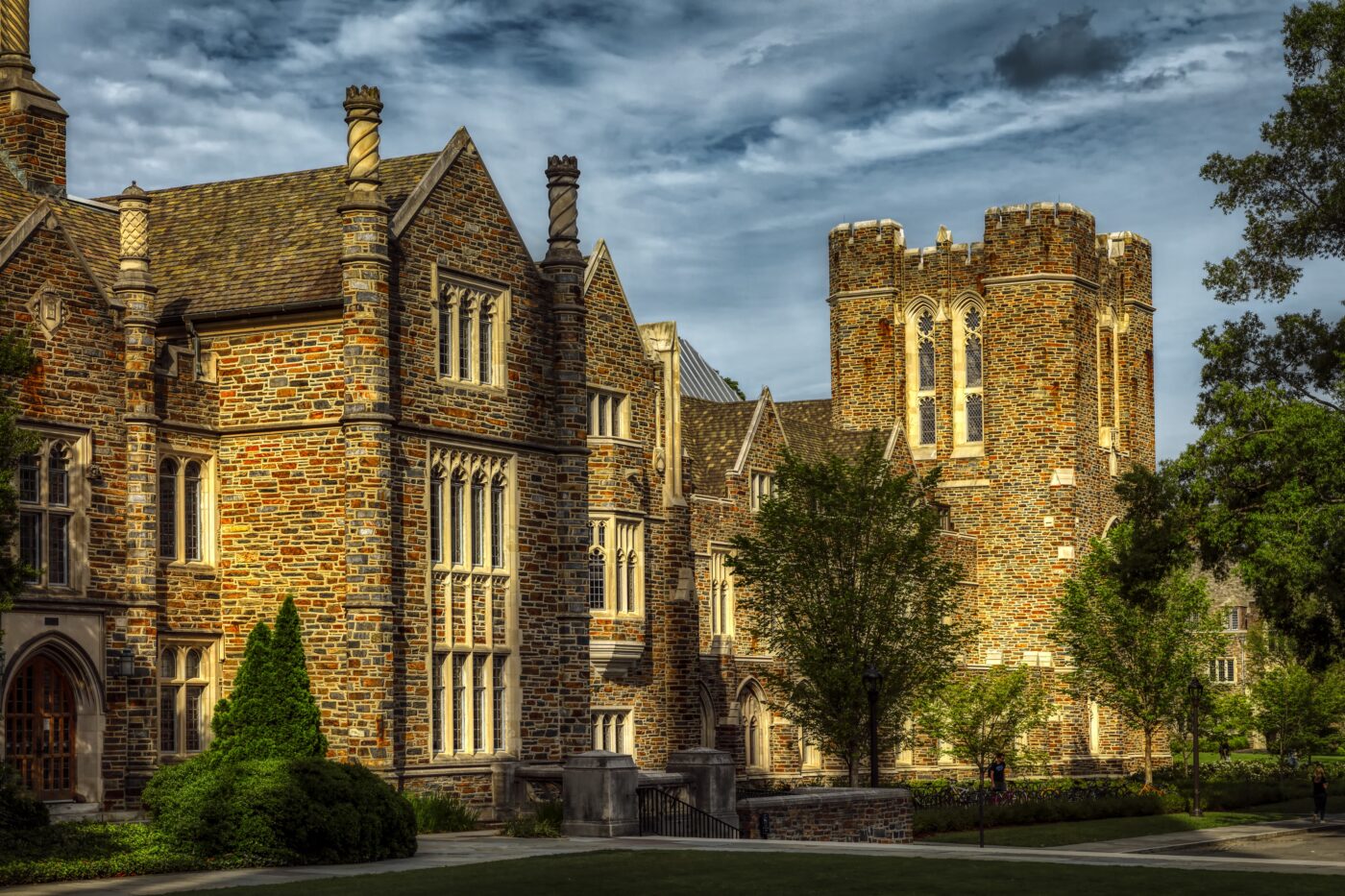
Duke University offers a stellar academic experience for pre-med hopefuls. Here’s a breakdown of your questions:
Science Department Strength
Top-Ranked Programs: Duke’s science programs are consistently ranked among the nation’s best, particularly in biology, chemistry, and neuroscience.
Renowned Faculty: You’ll learn from prominent researchers who are pushing the boundaries of scientific knowledge.
Interdisciplinary Approach: Duke encourages collaboration between science departments, allowing you to develop a well-rounded understanding of scientific concepts.
Pre-Med Resources
MCAT Preparation: Duke doesn’t have a dedicated MCAT program, but the university offers resources like practice tests and advising from pre-med advisors. The Duke Independent Learning Office (DILO) might also have MCAT prep resources.
Curriculum: The pre-med curriculum is challenging, providing a strong foundation in biology, chemistry, physics, and math. Courses emphasize critical thinking skills necessary for the MCAT and medical school success.
Pre-Med Advising: A dedicated pre-med advising office helps students navigate academics, course selection, medical school applications, and the MCAT. They can also advise on extracurricular activities and research.
Mentorship: Mentorship opportunities exist through faculty advisors, physicians, and other healthcare professionals. The Duke Alumni Association can also connect you with medical professionals for mentorship.
Research: Undergraduate research is highly encouraged. Duke offers ample opportunities to work alongside leading researchers on cutting-edge projects, strengthening applications for medical school.
Medical School Acceptance Rate: Acceptance to Duke University School of Medicine is highly competitive, typically around 4-6%. However, Duke undergraduates have an advantage in the admissions process.
Residency Placement: Duke medical school graduates boast a very high residency placement rate.
Alumni Success: Duke medical school alumni are leaders in various medical fields, working at top hospitals and institutions worldwide.
Financial Aid: Duke offers generous financial aid, meeting the full demonstrated need of admitted students.
Campus Environment: Duke’s beautiful campus is located in Durham, North Carolina, offering a collegiate atmosphere with a moderate cost of living compared to some other major pre-med institutions.
Unique Pre-Med Programs: Duke doesn’t have specific pre-med programs, but the strong focus on research and undergraduate opportunities set it apart. Additionally, Duke offers a Bass Connections program that allows undergraduates to collaborate with faculty and community partners on health-related research projects.
Early Assurance Medical School: Duke doesn’t have an early assurance program for its medical school. However, strong academic performance and a demonstrated commitment to medicine during undergrad improve your chances for admission.
Overall, Duke University provides an excellent pre-med foundation with its top-ranked science programs, research opportunities, and strong pre-med advising. The vibrant campus life and thriving alumni network offer additional advantages.
Duke University Pre-Med Advising Guide
Duke University provides a comprehensive pre-med advising program designed to guide students as they prepare for medical school. The advising services are aimed at helping students meet their academic and professional goals by navigating the complex requirements of medical school applications and preparing for health careers in medicine, dentistry, veterinary medicine, and more.
Key Components of Duke’s Pre-Med Advising
Advising and Planning: Duke offers personalized advising to help students plan their coursework and prepare for the MCAT, manage their time effectively during their studies, and plan for gap years if needed.
Course Requirements: Students are advised to follow a recommended course sequence to build a strong foundation in the sciences and other required areas:
- Biology: 2 courses with lab
- General Chemistry: 2 courses with lab
- Organic Chemistry: 2 courses with lab
- Physics: 2 courses with lab
- Biochemistry: 1 course
- Sociology and Psychology: 1 course each
- Statistics and Calculus I: 1 course each
- English/Writing: 2 courses
Duke University’s pre-med advising program is designed to support students at every stage of their pre-med education, ensuring they are well-prepared to pursue a career in medicine or related fields. For more detailed information please refer to How to Get Into Duke University School of Medicine: The Definitive Guide.
University of Washington
The University of Washington (UW) stands out as a prime choice for students aiming for a career in medicine. This detailed guide highlights the unique strengths and extensive resources the university offers to pre-med students.

Science Department Strengths
Nationally Recognized Programs: UW is celebrated for its exceptional programs in life sciences, including biology and bioengineering. You can learn more about its rankings and accolades here.
Renowned Faculty: The university prides itself on a faculty comprised of leading researchers who contribute significantly to their fields, enriching the learning experience with cutting-edge knowledge.
Focus on Interdisciplinary Study: Emphasis on cross-departmental collaboration enhances the educational landscape, providing a well-rounded grasp of various scientific principles.
Pre-Med Resources
MCAT Preparation: While UW does not offer a dedicated MCAT prep program, it supports students with a range of resources including practice tests and access to pre-med advising.
Curriculum: The pre-med track at UW lays a solid academic foundation in essential subjects such as biology, chemistry, physics, and mathematics, crucial for success in the MCAT and medical school.
Dedicated Advising: The Pre-Health Advising office assists students in navigating their academic journey and medical school applications, offering guidance on course selection and extracurricular activities.
Research Opportunities: Students are encouraged to engage in research, which bolsters medical school applications and provides invaluable hands-on experience.
Clinical Experience: Proximity to top-notch clinical facilities offers students the chance to gain necessary real-world experience in various medical settings.
Unique Program Features
Medical School Acceptance Rate: The University of Washington’s School of Medicine has a competitive acceptance rate, which is typically around 3-4%. This reflects the program’s selectivity and the rigorous nature of its academic and clinical training. If you need more specific, up-to-date statistics, it might be a good idea to check directly with the university or their official admissions webpage for the most current information.
Residency Placement and Alumni Success: Graduates enjoy a high residency placement rate and are known to excel in diverse medical fields post-graduation.
Financial Aid and Scholarships: Considering the potential high costs, UW provides extensive financial aid options to support its students.
Vibrant Campus Life: Located in Seattle, the campus offers a dynamic environment with ample cultural and academic opportunities to enrich student life.
Pre-Med Program Details
Introductory Seminar: New students begin their journey with the GEN ST 297 Pre-Health 101 Seminar, which introduces them to the essentials of the pre-health track.
Comprehensive Resources: The Pre-Health Portal offers access to various resources, helping students explore and prepare for a career in healthcare.
Academic and Career Planning: Regular meetings with advisors ensure that students are on the right track to fulfill medical school prerequisites and align their aspirations with their academic efforts.
Research and Leadership Development
Engagement in Research: Students are encouraged to take part in projects that allow them to explore the scientific underpinnings of medicine, available through UW’s robust Undergraduate Research Program.
Leadership Opportunities: Through clubs, volunteering, and other extracurricular activities, students develop crucial leadership skills that are highly valued in medical professionals.
Long-Term Support and Resources
MCAT and Application Preparation: Students receive structured guidance to prepare for the MCAT and navigate the complex medical school application process.
Gap Year Planning: Advice on how to effectively utilize a gap year to enhance medical school applications is readily available.
AAMC Resources: Students are encouraged to use the AAMC Medical School Admissions Requirements (MSAR) to tailor their preparations to specific medical schools.
For more detailed strategies on medical school admissions, consider exploring medical school admission strategies, or delve into our comprehensive guide on How to Get into Washington University School of Medicine.
This overview encapsulates the robust and supportive pre-med program at the University of Washington, designed to prepare students thoroughly for a successful career in medicine, emphasizing both academic rigor and practical experience.
University of North Carolina at Chapel Hill (UNC)
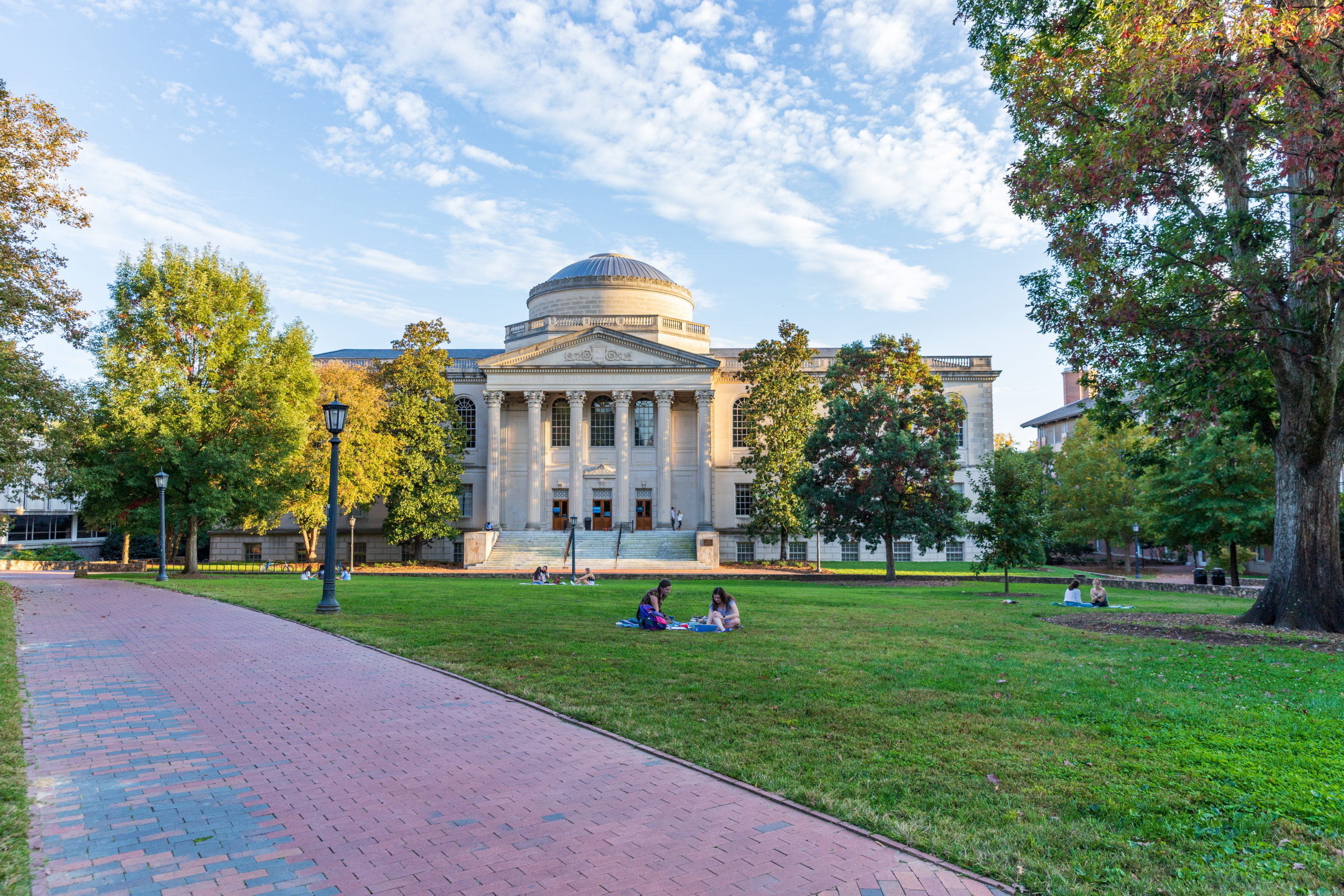
The University of North Carolina at Chapel Hill (UNC Chapel Hill) is a great option for pre-med students, offering a comprehensive program with a strong reputation. Here’s a breakdown of your questions:
Science Department Strength
Highly Ranked Programs: UNC Chapel Hill boasts well-respected science programs across various disciplines, consistently ranking well nationally. Biology, chemistry, and other life sciences are particularly strong for pre-med students.
Renowned Faculty: You’ll learn from accomplished professors who are actively engaged in research and at the forefront of their fields.
Collaborative Environment: Collaboration across science departments is encouraged, fostering a well-rounded understanding of scientific concepts.
Pre-Med Resources
MCAT Preparation: UNC Chapel Hill doesn’t have a dedicated MCAT prep program. However, the university offers resources like practice tests and advising from pre-med advisors. The Office of Undergraduate Research (OUR) might also have MCAT prep resources or advise on external prep courses.
Curriculum: The pre-med curriculum is rigorous, providing a solid foundation in biology, chemistry, physics, math, and other relevant sciences. Courses emphasize critical thinking skills necessary for the MCAT and medical school success.
Pre-Med Advising: A dedicated pre-med advising office helps students navigate academics, course selection, medical school applications, and the MCAT. They can also advise on extracurricular activities and research opportunities.
Mentorship: Mentorship opportunities exist through faculty advisors, physicians affiliated with UNC School of Medicine, and other healthcare professionals.
Research: Undergraduate research is encouraged. While UNC might not have the extensive research opportunities of some top universities, faculty connections and the Carolina Research Opportunities Initiative (known as CROI) can help students find research placements.
Medical School Acceptance Rate: Acceptance to UNC School of Medicine is competitive, typically around 6-8%. In-state students have a slight advantage for admission.
Residency Placement: UNC medical school graduates have a very good residency placement rate.
Alumni Success: UNC medical school alumni are successful in various medical fields, working at top hospitals and institutions worldwide.
Financial Aid: UNC offers financial aid, with in-state tuition being more affordable. However, out-of-state tuition can be expensive. Be sure to research scholarships and financial aid options.
Campus Environment: UNC Chapel Hill boasts a beautiful campus in a college town atmosphere near Chapel Hill. It offers a vibrant community with a moderate cost of living compared to some other major pre-med institutions.
Unique Pre-Med Programs: UNC doesn’t have specific pre-med programs, but the Carolina Research Opportunities Initiative (CROI) helps students find research placements, and the close proximity to UNC School of Medicine offers potential mentorship and research opportunities.
Early Assurance Medical School: UNC Chapel Hill doesn’t have an early assurance program for its medical school. However, strong academic performance and a demonstrated commitment to medicine during undergrad improve your chances for admission.
Overall, UNC Chapel Hill provides a strong pre-med foundation with its well-ranked science programs, supportive advising, and research opportunities. The beautiful campus, vibrant community, and in-state tuition for North Carolina residents make it an attractive option. For more information please refer to the How to Get Into UNC Medical School: Definitive Guide.
Cornell University

Cornell University: A Strong Option for Pre-Med
Cornell University offers a prestigious academic environment for aspiring medical professionals. Here’s a breakdown of your questions regarding its pre-med program:
Science Department Strength
Top-Ranked Programs: Cornell boasts nationally recognized science programs, particularly in biology and chemistry, providing a strong foundation for pre-med students.
Renowned Faculty: You’ll have the opportunity to learn from leading researchers who are making significant contributions to their fields.
Diverse Areas of Study: Explore a variety of science disciplines beyond the core pre-med requirements. This can spark new interests or enhance your application by showcasing intellectual curiosity.
Pre-Med Resources
MCAT Preparation: Cornell doesn’t have a dedicated MCAT prep program. However, the university offers resources like practice tests and advising from pre-med advisors. They can guide you to external MCAT prep courses that fit your needs.
Curriculum: The pre-med curriculum is rigorous, emphasizing critical thinking skills and covering core science subjects like biology, chemistry, physics, and math.
Pre-Med Advising: A dedicated pre-med advising office helps students navigate academics, course selection, medical school applications, and the MCAT. They can also advise on extracurricular activities and research opportunities.
Mentorship: Mentorship opportunities exist through faculty advisors, physicians, and other healthcare professionals.
Research: Undergraduate research is highly encouraged. Cornell offers ample opportunities to work alongside leading researchers on real-world projects, strengthening applications for medical school.
Medical School Acceptance Rate: Acceptance to Weill Cornell Medicine (Cornell’s medical school) is highly competitive, typically around 4%. However, Cornell undergraduates have a significant advantage in the admissions process for Weill Cornell Medicine.
Other Factors to Consider
Residency Placement: Weill Cornell Medicine graduates have a very high residency placement rate.
Alumni Success: Weill Cornell Medicine alumni are successful in various medical fields, working at top hospitals and institutions worldwide.
Financial Aid: Cornell offers generous financial aid, meeting the full demonstrated need of admitted students.
Campus Environment: Cornell’s Ithaca campus offers a beautiful, collegiate atmosphere in a somewhat rural setting. This can be a great environment for focused study but might lack the fast-paced feel of an urban university.
Unique Pre-Med Programs: Cornell doesn’t have specific pre-med programs, but the breadth of science offerings, the close connection to Weill Cornell Medicine, and a strong emphasis on research create a unique and advantageous environment for pre-med students.
Early Assurance Medical School: Cornell doesn’t have an early assurance program for Weill Cornell Medicine. However, strong academic performance and a demonstrated commitment to medicine during undergrad improve your chances for admission.
Overall, Cornell University provides a strong foundation for pre-med students with its top-ranked science programs, research opportunities, and strong pre-med advising. The beautiful campus and the connection to Weill Cornell Medicine can be significant advantages for those seeking a career in medicine.
Dimensions Program for Health Professions: Pre-Medicine Track Overview
Cornell College offers a robust Pre-Medicine program designed to prepare students for medical school. This guide provides an overview of the program components, resources, and timeline for students pursuing a career in medicine.
Program Overview
The Pre-Medicine track at Cornell College is facilitated by the Dimensions Program for Health Professions, which aids students in navigating the prerequisites and co-curricular experiences essential for medical school success. Students are expected to actively engage with the Associate Director of Dimensions and participate in pre-health events.
Key Resources
Dimensions Program for Health Professions Website: A primary resource for program information and guidance.
ExploreHealthCareers.org: Offers comprehensive insights into various health professions.
AAMC Medical School Admission Requirements: Available through the Dimensions office, this resource provides detailed admission requirements for medical schools.
Pre-Medicine Guide Components
What is a Physician?: Overview of the roles and responsibilities of MDs and DOs.
Health Professions Committee (HPC): Supports students with application processes, providing a crucial committee letter of recommendation.
Centralized Application Services: Information on AMCAS and AACOMAS for allopathic and osteopathic medical school applications.
Accreditation and Schools
Lists of accredited MD and DO programs are provided to guide students in selecting reputable institutions.
Academic Preparation
Medical School Prerequisites: Courses like general biology, chemistry, and physics are highlighted, alongside recommended courses for competitive profiles like biochemistry and psychology.
Competitive Applicant Characteristics: Insights into what medical schools look for in candidates, including academic performance, MCAT scores, healthcare exposure, and personal readiness for a medical career.
Sample 4-Year Timeline:
First Year: Focus on acclimation to college life, beginning prerequisite courses, and engagement in relevant extracurricular activities.
Second Year: Deepen involvement in selected activities, start major-specific courses, and continue building relationships with faculty.
Third Year: Complete essential prerequisites, take the MCAT, and prepare applications for medical schools.
Fourth Year: Focus on completing degree requirements, secondary applications, and interviews.
Additional Considerations:
AP Credits and Community College Credits: Guidance on how these credits are viewed by medical schools and strategies for course planning.
Summer Utilization: Encourages students to use summers for gaining additional experience in research, volunteering, or shadowing to strengthen their medical school applications.
The Pre-Medicine program at Cornell College is designed to equip students with the necessary academic foundation and practical experiences to successfully apply to and thrive in medical school. Students are encouraged to work closely with their advisors and the Dimensions program to tailor their undergraduate experiences towards their medical career goals. If you are looking for more information about this school, please check out our How to Get into Cornell Guide.
Is Pre-Med is Right for You?
Embarking on the path to a medical career is not just about choosing a profession—it’s about discovering a calling that aligns with your deepest interests and personal strengths. As you ponder the possibility of entering the medical field, it’s important to engage in some introspection to assess whether this path truly resonates with your passions and abilities. The field of medicine requires a unique blend of skills and traits that go beyond academic excellence. Here are some critical questions to consider:
Are you fascinated by the complexities of the human body and the science that explains how it functions?
Do you possess a natural curiosity and the drive to solve problems critically and innovatively?
Is your compassion towards others reflected in a genuine concern for their well-being and discomfort?
Do you find fulfillment in using your knowledge and skills to help others improve their health and lives?
Are empathy, communication, and active listening among the strengths that define you?
Does your passion for learning propel you to explore subjects deeply and comprehensively beyond the basic requirements?
Do you value education not just for the grades but for the expansive knowledge and understanding it brings?
Are you captivated by the potential of medical advancements to enhance and save lives?
If these questions resonate with you and your responses lean overwhelmingly towards Yes, then you likely possess the intrinsic qualities that are fundamental to becoming a successful and compassionate physician. The journey through medical school and beyond is demanding yet incredibly rewarding for those driven by a genuine desire to make a difference in the field of healthcare.
Understanding Pre-Med
Pre-med is a collegiate track rather than a specific major. Declaring pre-med signals to academic advisors and faculty that a student aims to become a doctor which influences the guidance and coursework recommendations they receive during their college years.
Prospective students must navigate through various stages, starting from obtaining impactful letters of recommendation for medical school to engaging in relevant clinical and research experiences. This section will explore essential components that contribute to a successful application to top pre-med schools.
Medical School Admission Rates
Medical school admission rates are a critical metric for prospective students as they indicate the competitiveness of different institutions. While top pre-med schools might boast lower acceptance rates, they also provide extensive resources such as pre-med advising services and access to state-of-the-art MCAT preparation resources. Knowing these rates helps candidates gauge the expectations and align their preparation strategies accordingly.
Crafting Effective Letters of Recommendation for Medical School
Letters of recommendation for medical school play a pivotal role in the medical school application process. They provide admissions committees with peer evaluations of your academic abilities, clinical competencies, and personal qualities. To ensure effectiveness, candidates should foster strong relationships with faculty and supervisors early in their pre-med program. Engaging in undergraduate research in pre-med and taking on leadership roles can significantly enhance these letters, reflecting a student’s initiative and dedication.
Preparing Through the MCAT Preparation Resources
Success in the Medical College Admission Test (MCAT) is a cornerstone of any medical school application. Utilizing MCAT preparation resources effectively is crucial. Top pre-med schools often offer workshops, practice tests, and personalized tutoring, all designed to equip students with the skills needed to excel in this challenging exam.
Gaining Valuable Clinical Experience for Pre-Med
Clinical experience for pre-med students is not just a requirement but a necessity that provides insight into the medical profession. Engaging in clinical opportunities in pre-med allows students to understand patient care firsthand and demonstrates their commitment to the healthcare field. Such experiences are often facilitated through pre-med advising services, which connect students with local hospitals and clinics.
Exploring Research Opportunities for Pre-Med Students
Research opportunities for pre-med students are instrumental in developing critical thinking and analytical skills. Participating in undergraduate research in pre-med also strengthens a student’s application, showcasing their ability to contribute to the medical field’s body of knowledge. Many top pre-med schools provide pathways for students to engage in research projects that align with their academic interests.
Engaging in a Robust Pre-Med Curriculum and Coursework
The pre-med curriculum and coursework are designed to prepare students thoroughly for medical school challenges. This includes a strong foundation in the sciences, exposure to problem-solving scenarios, and courses that enhance interpersonal skills. An effective pre-med program will offer a balanced academic environment for pre-med students, ensuring they are well-rounded and ready for future medical training.
Leadership in Pre-Med
Developing leadership in pre-med activities is another facet of preparing for medical school. Whether through student organizations, community service, or conducting peer-led research projects, leadership experiences help build character and management skills, traits that medical schools highly value.
Leveraging Pre-Med Advising Services
Pre-med advising services are invaluable throughout a student’s medical school preparation journey. Advisors help students navigate the medical school application process, from choosing the right pre-med curriculum and coursework to preparing for the MCAT and securing letters of recommendation for medical school.
Building a Comprehensive Profile
Ultimately, a successful application to medical school involves a combination of strong academic performance, meaningful clinical experience for pre-med, and significant engagement in research opportunities for pre-med students. The academic environment for pre-med at an institution can greatly influence a student’s preparedness for these challenges. As such, choosing the right pre-med program and maximizing the available pre-med advising services and resources is crucial for any aspiring medical professional.
Familiarity with the dynamics of medical school admission rates, utilizing available MCAT preparation resources, and actively participating in clinical opportunities in pre-med, students can enhance their chances of admission into prestigious medical schools. Each element of preparation is a step towards a successful and fulfilling career in medicine.
Essential Pre-Med Requirements
Medical schools have set prerequisites that pre-med students are expected to complete. These generally include:
- One year of biology with lab
- One year of general chemistry with lab
- One year of organic chemistry with lab
- At least one semester of biochemistry
- One year of physics with lab
- Mathematics, often calculus or statistics
- One year of English
Medical School Applications
To improve your chances of medical school admission, consider these strategies:
- Ensure you understand the prerequisites of your target medical programs.
- Choose a major that aligns with your interests and the pre-med requirements.
- Regularly consult with academic advisors.
- Prepare thoroughly for the MCAT, aiming for at least 200 study hours.
Choosing the Best Majors for Pre-Med
While you can major in any field and still fulfill pre-med requirements, some majors naturally align more closely with the needs of medical school. Popular choices among pre-med students include:
- Biology: Covers most medical school prerequisites.
- Chemistry: Offers a strong foundation in the chemical processes relevant to medicine.
- Physics: Useful for those interested in fields like medical imaging or neuroscience.
- Mathematics: Enhances skills in problem-solving and data analysis, crucial for medical dosage calculations.
- Business: Ideal for students interested in healthcare administration.
Pre-Med and the MCAT
The MCAT is a critical factor in medical school admissions. Students usually take this exam in their last year of undergraduate study. Pre-med courses are designed to prepare students for the subjects covered on the MCAT.
Frequently Asked Questions About Pre-Med Programs
Is pre-med a major?
No, it’s a track that prepares students for medical school.
Is pre-med challenging?
Yes, it involves intensive courses and requires excellent academic performance.
When should students declare a pre-med track?
Ideally by the end of their sophomore year to align their course selection with medical school requirements.
How long does pre-med last?
It aligns with the duration of the undergraduate degree, typically four years.
How Can I Stay on Track with Pre-Med Requirements?
Regular consultations with pre-med or pre-health advisors are crucial. They help ensure you are selecting the right courses and staying on track for medical school applications. Maintaining a close relationship with your advisor throughout your college years is advisable.
What is the Transition from Non-Pre-Med to Medical School Like?
Even if you weren’t on a pre-med track, you can still apply to medical school if you meet the prerequisites. Non-pre-med students may need to complete postbaccalaureate programs to fulfill necessary courses.
What Are Pre-Med Postbaccalaureate Programs?
These programs are designed for students who need to meet medical school prerequisites after completing an undergraduate degree. They typically last 1-2 years, focusing solely on the necessary science courses.
What are Some Career Paths Beyond Becoming a Doctor?
The pre-med track prepares students for various healthcare careers, not just becoming a physician. This includes fields like optometry, veterinary medicine, dentistry, and more. For those not intending to practice medicine, pre-med courses can lead to careers in healthcare management, public health, or education.
More About Pre-Med and Pre-Health
Both paths share foundational courses, but the intensity and focus may differ based on the career outcomes.
Pre-med is not just about preparing to become a doctor but about setting a foundation for a variety of careers in healthcare. Whether you aim to treat patients directly or contribute to the medical field in other capacities, a well-planned pre-med track can open many doors. Remember, choosing the right courses and staying engaged with your academic advisors are key steps in ensuring your journey through pre-med leads to success in the healthcare sector.
The paths to a career in healthcare begins with distinguishing between pre-health and pre-med programs, each designed with specific end goals that cater to a broad array of medical and health-related professions. Pre-med is a focused academic track that prepares students for medical school and a career as a physician. It is not a major in itself but a series of courses that fulfill medical school prerequisites, such as biology, chemistry, physics, and often biochemistry, along with labs. These courses are crucial for developing the foundational knowledge required for the Medical College Admission Test (MCAT) and future medical studies.
Pre-Health Track
On the other hand, pre-health is a broader category that includes pre-med but also encompasses preparation for a variety of other health-related fields such as dentistry, veterinary medicine, nursing, and public health. While pre-med requirements are quite specific, pre-health pathways can vary significantly depending on the targeted profession. Students may still complete science-heavy coursework but may also need to focus on other areas, such as social sciences, to prepare for different graduate tests like the Dental Admission Test (DAT) or to meet the prerequisites of diverse health professions schools.
GPA, Entrance Exam Scores and Other Factors
Both tracks emphasize the importance of academic excellence, particularly in science subjects, as reflected in GPA and entrance exam scores. However, they also stress the value of a well-rounded education involving humanities and social sciences to develop strong communication skills and ethical reasoning. Research, clinical experience, and volunteer work are highly valued across all health professions schools, not only to bolster applications but to ensure students have a genuine understanding of and commitment to their chosen field.
Health professions schools are keen on applicants who have demonstrated long-term commitment and passion through significant involvement in relevant activities that show leadership, creativity, and a proactive approach to their education and future careers. This could include independent research projects, leadership roles in relevant organizations, or sustained volunteer work in clinical settings.
Students are encouraged to begin forming relationships with faculty and advisors early in their undergraduate careers to obtain strong letters of recommendation and guidance on fulfilling their professional aspirations. The role of pre-professional advisors is critical as they help navigate the complex requirements of health professions schools and ensure that students take courses that not only meet these requirements but also play to their academic strengths and interests.
Ultimately, whether following a pre-med or a broader pre-health track, students are advised to choose majors and activities that truly interest them and align with their career goals, rather than what may seem most impressive on applications. This approach ensures they remain motivated and engaged throughout their educational journey, preparing them for the rigors of professional school and beyond.
Path to Medical School with Precision and Purpose
Medical school is a commitment that requires meticulous planning, unwavering dedication, and a proactive approach to personal and professional development. As aspiring physicians, students must cultivate a broad spectrum of skills and qualities that align with the demanding nature of the medical profession. The process begins early, often in high school, and extends through college with a focus on academic excellence, leadership, and community service.
The selection of a pre-med program is pivotal. It serves as the foundation for building a compelling medical school application. Top-tier medical schools, including Ivy League institutions and renowned research universities, set rigorous academic standards and seek candidates who not only excel academically but also demonstrate a robust commitment to medicine through extensive clinical, research, and volunteer experiences.
The importance of a strategic approach in the selection of undergraduate coursework, extracurricular activities, and summer internships cannot be overstated. These elements are crucial in showcasing the candidate’s readiness and suitability for the challenges of medical school.
Internationally, the opportunities provided by programs like International Medical Aid (IMA) offer a unique and invaluable perspective on global health, enhancing a student’s medical school application and broadening their understanding of medicine in diverse contexts. Such experiences underscore the candidate’s adaptability, cultural competence, and eagerness to learn from a global standpoint.
Furthermore, the role of medical school admissions consulting services, such as those offered by IMA, is instrumental in refining applications and preparing candidates for the rigorous admissions process. From comprehensive primary and secondary application reviews to personalized interview coaching, these services aim to highlight the candidate’s strengths and unique qualities, ensuring they stand out in a highly competitive applicant pool.
Focusing on Long-Term Goals
As students navigate the intricate pathways towards medical school, it is imperative to remain focused on their long-term goals while embracing opportunities for growth and learning. Each step taken should be intentional and reflective of the individual’s dedication to becoming a compassionate, skilled, and thoughtful physician. In doing so, they not only enhance their own prospects but also contribute positively to the communities they will one day serve.
Choosing the right pre-med program and leveraging the available resources effectively can significantly influence a student’s medical school journey. With the support of experienced mentors and advisors, alongside the strategic use of admissions consulting services, students can navigate this challenging journey with confidence and clarity. The path to medical school, while arduous, is rich with opportunities for personal and professional development, setting the stage for a fulfilling career in medicine.
For those committed to making a difference in the field of healthcare, the journey begins with a single step: choosing a pre-med path that aligns with their ambitions and values. International Medical Aid continues to support this journey, providing the tools and guidance necessary to navigate the complex terrain of medical school admissions.

